Shows

The HIV PodcastCher-ing is CaringThe HIV Podcast is back for 2026! This week's episode takes a look at the amazing work Cher has done for the HIV community and then we look at the CHER clinical study, so this week really is all about Cher-ing.SourcesCher - WikipediaCher, Demi Moore entertain guests at glamorous Cannes fundraiser for AIDS | ReutersCHER | MRC Clinical Trials Unit at UCL Hosted on Acast. See acast.com/privacy for more information.
2026-01-1634 min
Oncology DecodedWhat Were The Key Kidney and Bladder Cancer Advances in 2025?As part of ushering in the new year, Oncology Decoded hosts Manojkumar Bupathi, MD, MS, and Benjamin Garmezy, MD, looked back on the most exciting advancements that shook up the genitourinary oncology landscape throughout 2025. Specifically, they highlighted the clinical trial readouts, regulatory milestones, and other breakthroughs that made 2025 a “remarkable year” in kidney cancer and bladder cancer care.Bupathi is the executive cochair of the Genitourinary Cancer Research Executive Committee at Sarah Cannon Research Institute (SCRI) and a medical oncologist with Rocky Mountain Cancer Centers, specializing in solid tumors and genitourinary cancers. Garmezy is the associate director of geni...
2026-01-0839 min
Against the Grain - The PodcastA Conversation with Michele Frison, Postdoctoral Research Assistant, MRC Mitochondrial Biology Unit at the University of Cambridge Today's episode features guest host Michael Upshall (guest editor, Charleston Briefings) who talks with Michele Frison, Postdoctoral Research Assistant at the MRC Mitochondrial Biology Unit at the University of Cambridge. Michele is originally from Italy and completed his PhD at UCL in England with a focus on cell biology. He defines himself as a cell biologist and biochemist, and much of his current research specializes in cell and mitochondrial biology, aging and disease. The Mitochondrial Biology Unit is part of a larger infrastructure that runs clinical trials for rare diseases. Michele says the process is very slow, t...
2026-01-0654 min
Queen Square In FocusInside the Future of Functional Neurosurgery with Professor Ludvic ZrinzoWhat if brain surgery could be performed without ever opening the skull? In this episode, Professor Ludvic Zrinzo, Head of the UCL Functional Neurosurgery Unit, reveals how cutting-edge techniques like deep brain stimulation, radiofrequency ablation, and focused ultrasound are transforming treatment for Parkinson’s disease, tremor, dystonia, OCD, depression, and Tourette’s syndrome. He explains the evolution of minimally invasive brain surgery, the importance of multidisciplinary care, and how personalised approaches are improving patient outcomes and quality of life.You’ll also hear how research funded by the NIHR and MRC is shaping the future of neurological treatm...
2025-11-2535 min
Petra SittigExploring the Intersection of Art, Science, and Memory with Professor Hugo SpiersIn this interview, I speak with Professor Hugo Spiers, Vice Dean for Innovation and Enterprise in the Faculty of Brain Sciences at UCL. With over 25 years of experience in neuroscience and psychology, Hugo has built an exceptional career. He earned his Ph.D. in Neuroscience from the UCL Institute of Cognitive Neuroscience and has conducted research at the MRC Cognition and Brain Sciences Unit in Cambridge and the Wellcome Trust Centre for Neuroimaging before founding his own research team at UCL's Department of Experimental Psychology. Hugo’s research focuses on understanding the neural basis of spatial cognition and memory, ut...
2025-04-021h 07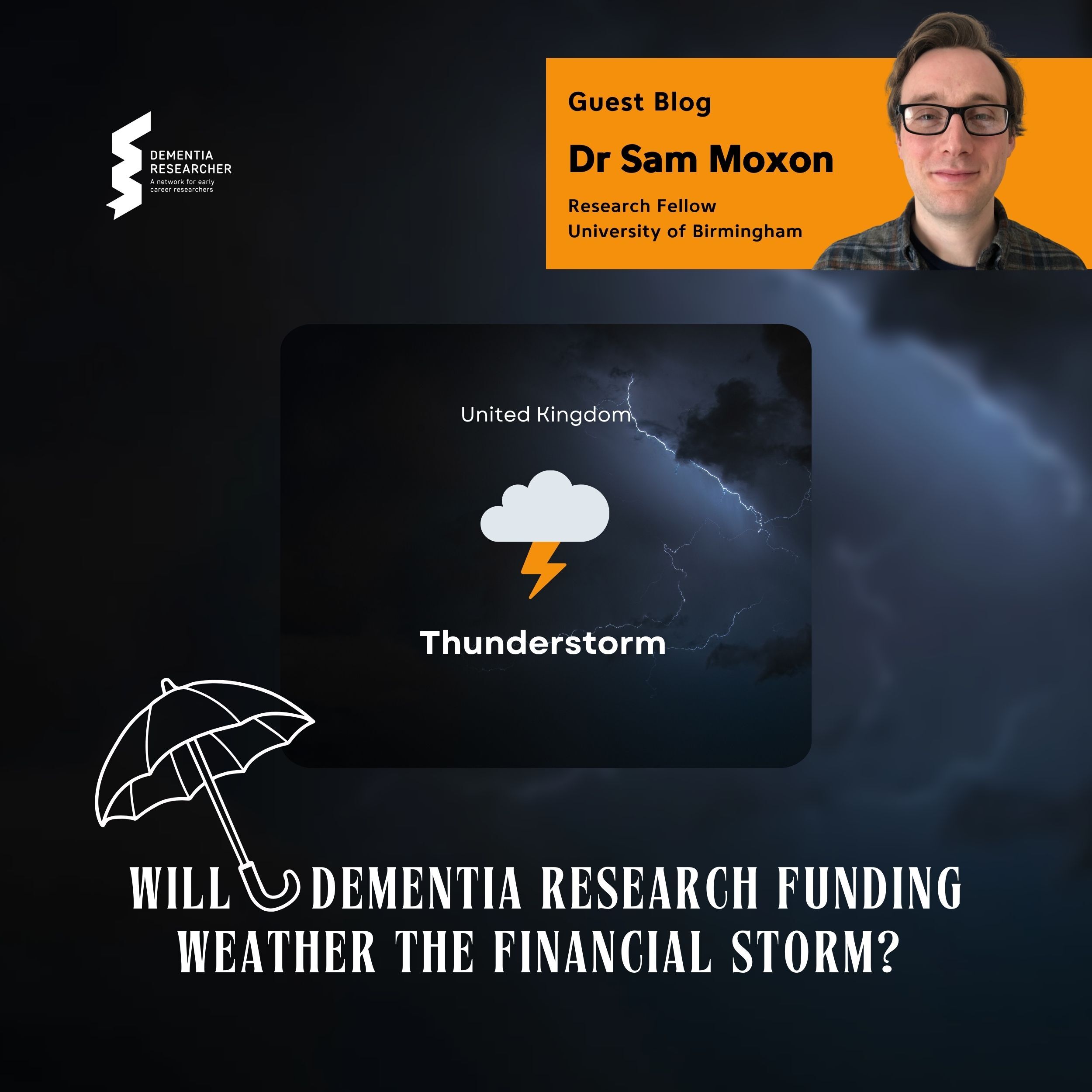
Dementia Researcher BlogsDr Sam Moxon - Will Dementia Research Funding Weather the Financial Storm?Dr Sam Moxon, narrates his blog written for Dementia Researcher.
Sam examines the impact of the UK's shifting financial priorities on dementia research funding. While government-backed funds like Innovate UK, MRC, EPSRC, and UKRI face potential budget tightening, charities such as Alzheimer's Research UK, Alzheimer's Society & Race Against Dementia continue to play a crucial role. The blog highlights uncertainties ahead, suggesting increased competition for available grants, but reassures that the overall support for dementia research remains strong despite financial pressures.
Find the original text, and narration here on our website.
https://www.dementiaresearcher...
2025-03-2405 min
Trial TalkEpisode 8: International Clinical Trials Methodology Conference 2024 roundup - Early Careers EditionAt the start of October, lots of the Unit’s clinical trials methodology researchers travelled to Edinburgh, for the 7th International Clinical Trials Methodology Conference (ICTMC). ICTMC is the largest academic-led conference on clinical trials, bringing together trialists from across the globe to present their latest work in trials methodology. This year's conference featured a wide variety of workshops, talks and poster presentations from MRC Clinical Trials Unit researchers. In this latest episode of the Trial Talk podcast, four of the Unit’s early career researchers discuss the work they presented at ICTMC 2024. Gideon Darko Asamoah tell...
2024-10-3125 min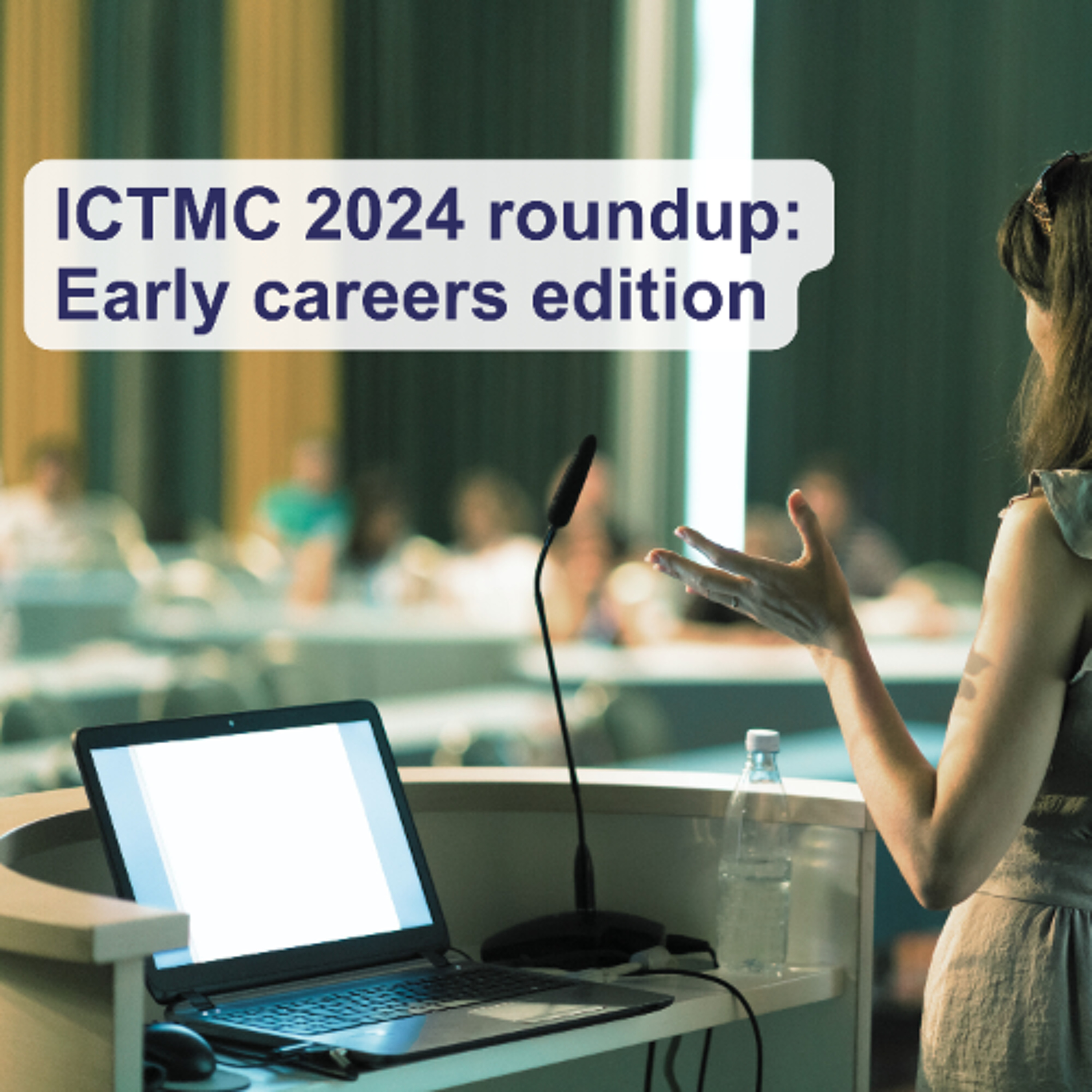
MRC CTU PodcastsInternational Clinical Trials Methodology Conference 2024 roundup - early careers editionAt the start of October, lots of the Unit’s clinical trials methodology researchers travelled to Edinburgh, for the 7th International Clinical Trials Methodology Conference (ICTMC).
ICTMC is the largest academic-led conference on clinical trials, bringing together trialists from across the globe to present their latest work in trials methodology. This year's conference featured a wide variety of workshops, talks and poster presentations from MRC Clinical Trials Unit researchers.
In this latest episode of the Trial Talk podcast, four of the Unit’s early career researchers discuss the work they presented at ICTMC 2024.
Gideon Darko Asamoah tells us how he will...
2024-10-3025 min
Trial TalkEpisode 7: Preventing multidrug-resistant tuberculosisIn September 2024, the World Health Organization (WHO) released new guidance on preventative treatment for tuberculosis (TB). Thanks to new evidence from two randomised controlled clinical trials, the WHO now recommends that contacts of people with multidrug-resistant TB take six months of daily levofloxacin. In this episode of the Trial Talk podcast, we find out more about the TB-CHAMP and VQUIN trials. We also learn how the teams came together to combine their data and strengthen their evidence, using new statistical methodologies developed at the MRC Clinical Trials Unit at UCL. The episode features interviews with Anneke Hesseling, Principal Investigator...
2024-09-2532 min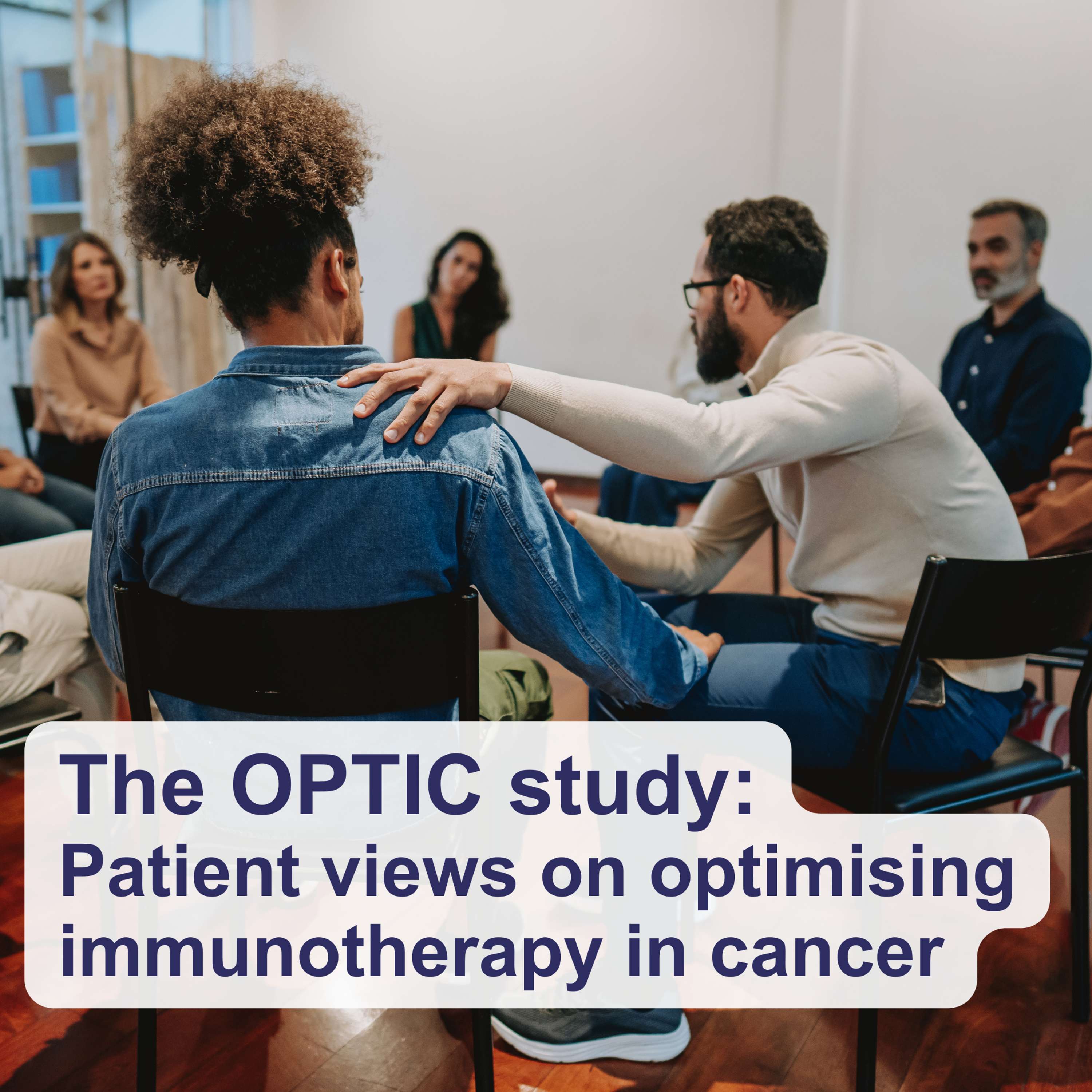
Trial TalkEpisode 6: The OPTIC study: Patient views on optimising immunotherapy in cancerOptimisation immunotherapy clinical trials investigate ways of reducing the intensity of immunotherapy cancer treatment. This could be beneficial for patients’ quality of life. But these trials can be challenging to run, as patients may be concerned about the impact that reducing the intensity of treatment could have on the cancer.This episode of the Trial Talk podcast focuses on the MRC Clinical Trials Unit at UCL’s OPTIC study, which explores how people with cancer feel about taking part in optimisation immunotherapy trials. Clinical Fellow Sophie Merrick discusses the main barriers that patients face and recommendations to addr...
2024-07-0125 min
ICMDA RecordingsWebinar #28 Prof Andrew Tomkins - Corruption in HealthcareRecorded on 15 October 2020 for ICMDA Webinars.
Dr Peter Saunders chairs a webinar with Prof Andrew Tomkins
"Corruption, an undeniable reality in the health sector, is arguably the most serious ethical crisis in medicine today... Corruption traps millions of people in poverty, perpetuates the existing inequalities in income and health, drains the available resources undermines people’s access to healthcare, increases the costs of patient care and, by setting up a vicious cycle, contributes to ill health and suffering." - Subrata Chattopadhyay
This webinar discusses the challenges facing healthcare professionals and what can be don...
2024-06-1255 min
Trial TalkEpisode 5: Patient and Public Involvement (PPI) in clinical trialsThe MRC Clinical Trials Unit at UCL is committed to actively involving patients and the public in our trials. All our Patient and Public Involvement (PPI) work is overseen by our PPI Group, made up of MRC CTU staff alongside seven patient representatives, with a wide range of experience in different areas. In this episode of the Trial Talk podcast, two members of the Unit’s PPI Group, Richard Stephens and Ian Newsome, discuss what PPI means to them; how they got involved as patient representatives in clinical research; and how the MRC CTU at UCL embeds PPI into ou...
2024-06-0434 min
Public Health Disrupted – the new Podcast from UCL Health of the PublicEpisode 4: The genetic revolution: implications and applications for improving the health of the publicIn this month’s episode, our experts dive into the exciting world of genetics, exploring the latest technological breakthroughs and innovations. They discuss not only the value of these advancements but also the ethical considerations surrounding them, particularly in how they can enhance the health of the public.Dr Adam Rutherford, bestselling author, broadcaster and lecturer in genetics and society at UCL, shares his wealth of knowledge on the evolution of genetics, and the common misconceptions that persist in the field. Adam delves into the historical context of genetics and its entanglement with eugenics, reminding us of the...
2024-05-0842 min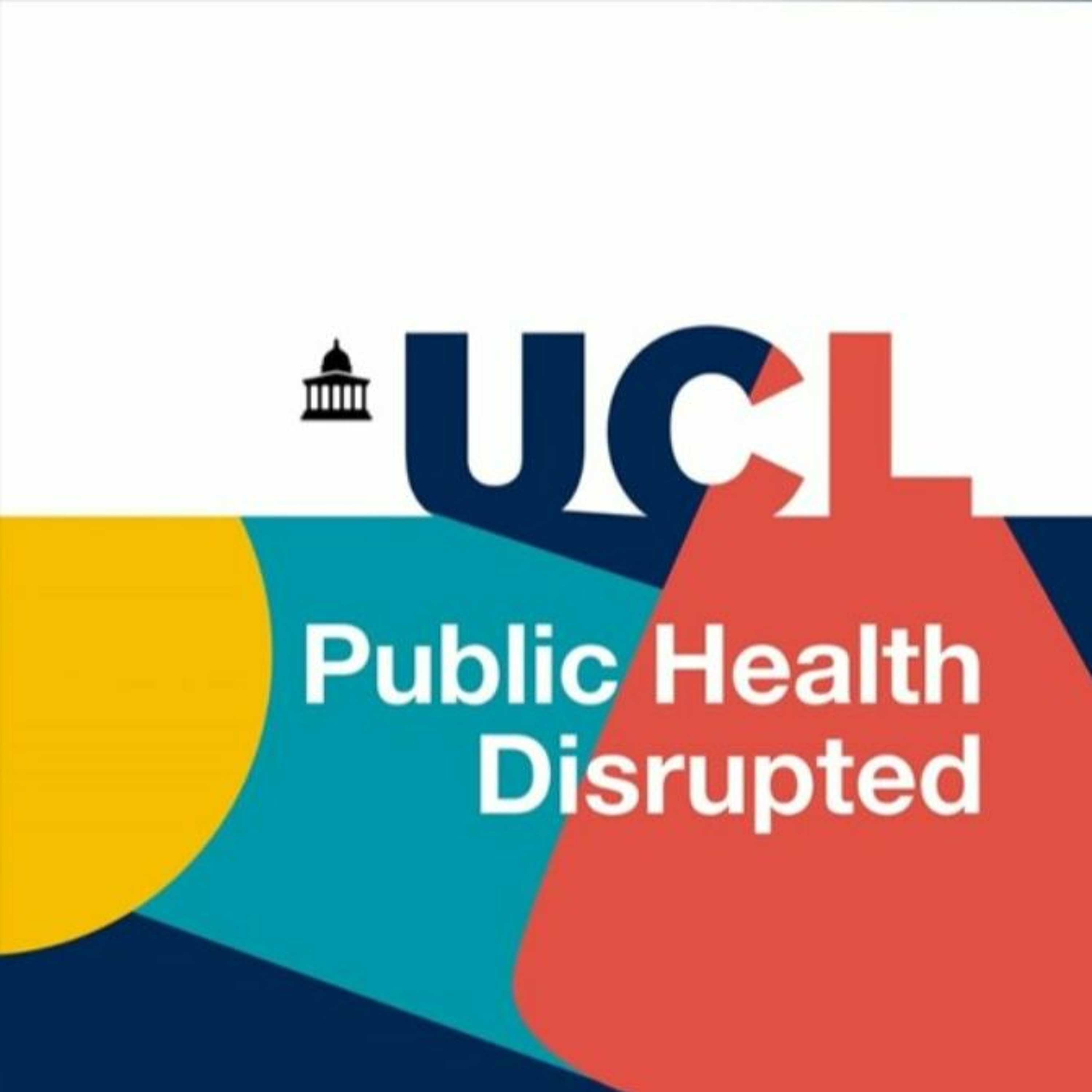
UCL MindsSeason 4 - The genetic revolution: implications and applications for improving public healthHow does our understanding of genetics shape the health of the public?
In this month’s episode, our experts dive into the exciting world of genetics, exploring the latest technological breakthroughs and innovations. They discuss not only the value of these advancements but also the ethical considerations surrounding them, particularly in how they can enhance the health of the public.
Dr Adam Rutherford (bestselling author, broadcaster and lecturer in genetics and society at UCL) shares his wealth of knowledge on the evolution of genetics, and the common misconceptions that persist in the field. Adam delves into the historical context of ge...
2024-05-0842 min
UCL MindsLunch Hour Lecture | Can good sleep help our brain as we age?About the Lecture:
Little attention is paid to sleep hygiene and Dr Garfield will present evidence to persuade the audience otherwise. This involves discussing research that is correlational as well as causal evidence from experimental and genetic epidemiological studies from recent years. Within the realm of sleep I will also discuss some of our recent findings on napping and how a nap might be beneficial for maintaining a healthier brain as we get older.
About the speaker:
Dr Victoria Garfield is a Senior Research Fellow in Genetic Epidemiology at the MRC Unit for Lifelong Health and Ageing, based in the...
2024-02-2359 min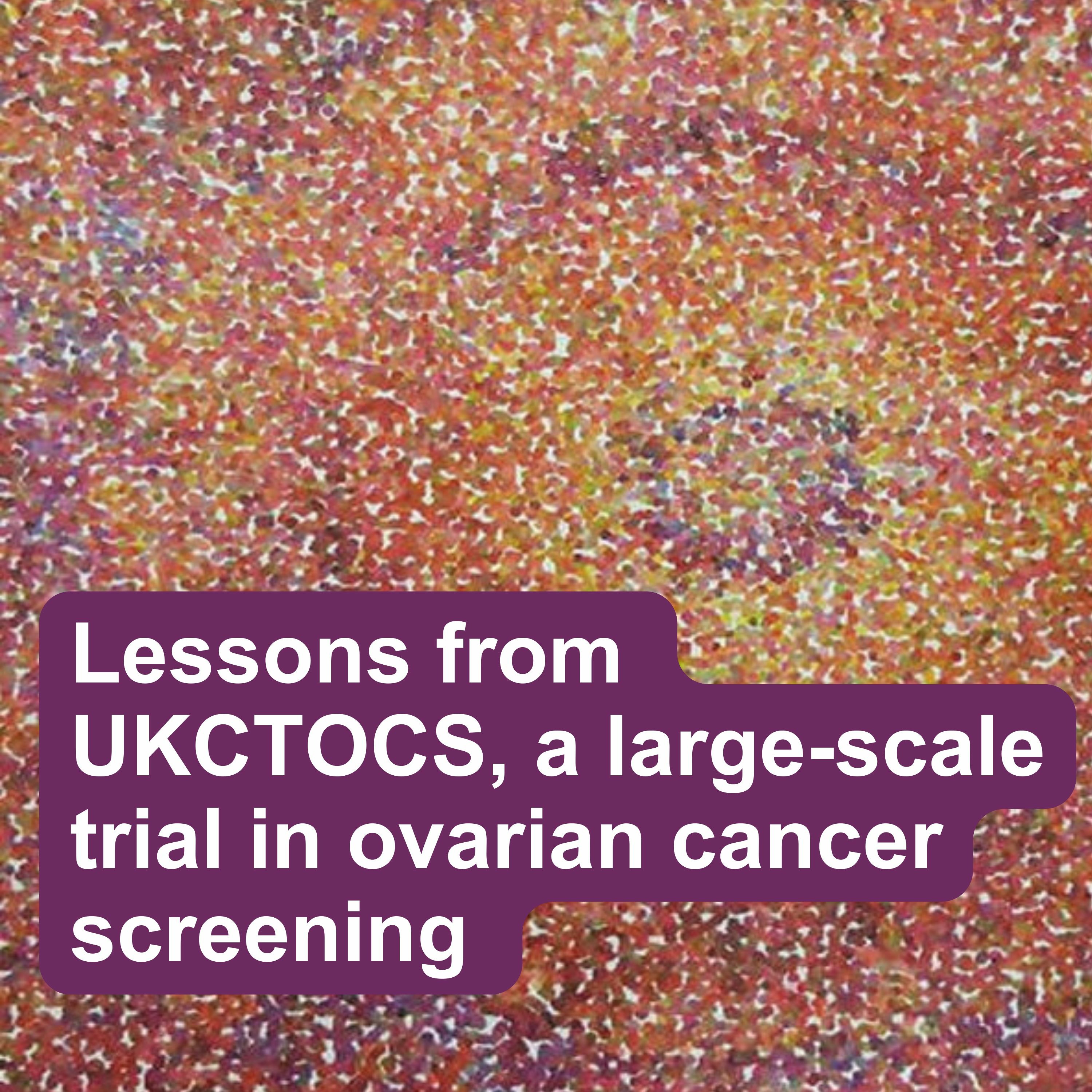
MRC CTU PodcastsLessons from UKCTOCS, a large-scale trial in ovarian cancer screeningUKCTOCS (UK Collaborative Trial of Ovarian Cancer Screening) is one of the largest screening trials in ovarian cancer. More than 200,000 women from England, Wales and Northern Ireland took part in it, and it ran for almost two decades. Designing and running such a large and lengthy trial came with its own challenges. In this episode, Professor Usha Menon discusses the key challenges that UKCTOCS faced in its design, conduct an analysis, and how the team addressed them.
Further information is available on the UKCTOCS website at https://ukctocs.mrcctu.ucl.ac.uk/
Listen to the episode about the UKCTOCS trial...
2024-02-0526 min
Trial TalkEpisode 1: Careers in TB trials with Andrew Nunn and Sarah MeredithIn the first episode of our new Trial Talk series, Hanif Esmail and Conor Tweed take over the microphones to interview Andrew Nunn and Sarah Meredith, who have both recently retired from the Unit, having spent a combined total of 92 years working in the field of tuberculosis (TB). As we celebrate Andrew and Sarah’s long and accomplished careers, we’ll dive into the history of TB clinical trials and muse on the future of TB research. For more information and to access the transcript: https://www.mrcctu.ucl.ac.uk/news/news-stories/2024/january/new-podcast-episode-careers-in-tb-clinical-trials Chec...
2024-02-0128 min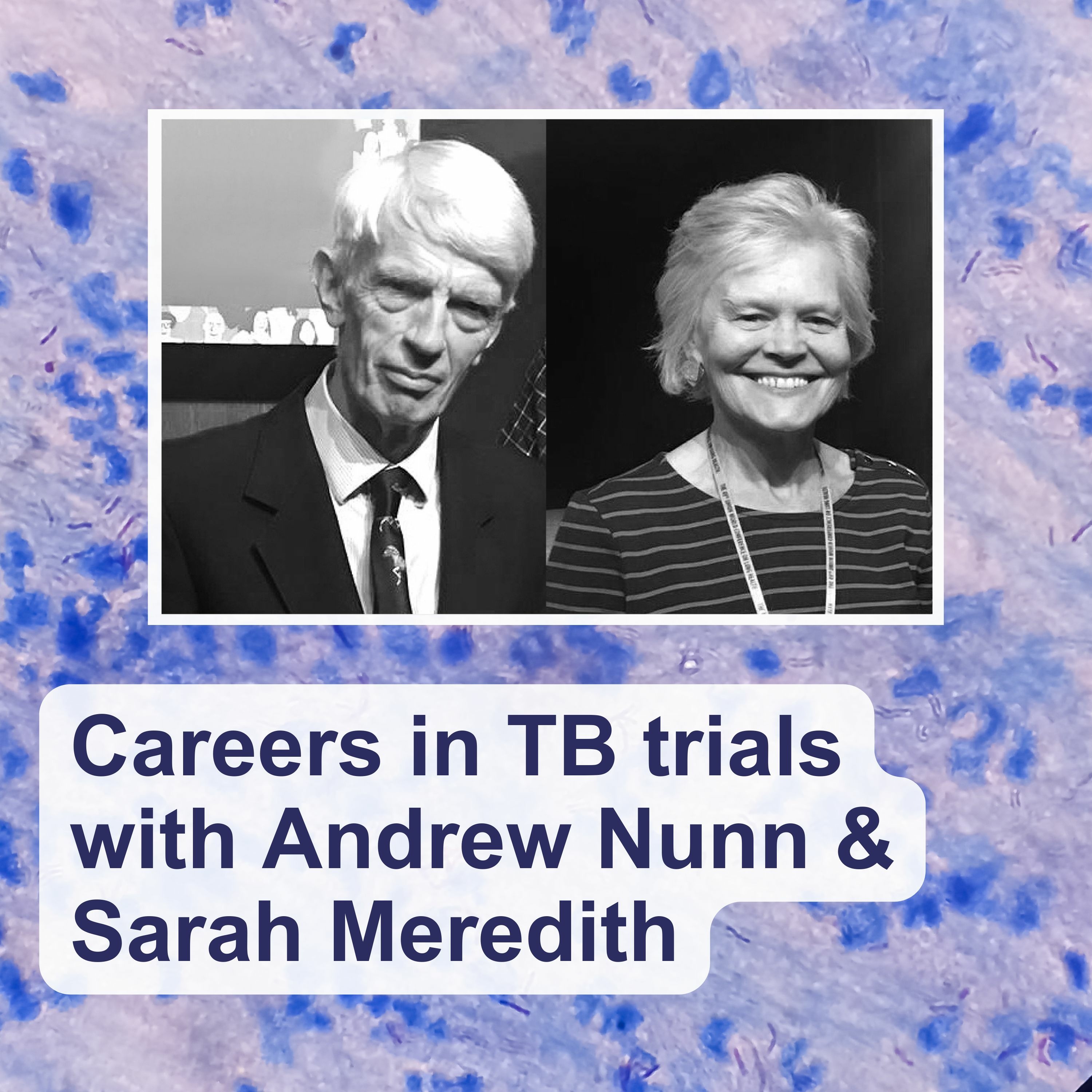
MRC CTU PodcastsCareers in TB trials with Andrew Nunn and Sarah MeredithIn the first episode of our new Trial Talk series, Hanif Esmail and Conor Tweed take over the microphones to interview Andrew Nunn and Sarah Meredith, who have both recently retired from the Unit, having spent a combined total of 92 years working in the field of tuberculosis (TB).
As we celebrate Andrew and Sarah’s long and accomplished careers, we’ll dive into the history of TB clinical trials and muse on the future of TB research.
For more information and to access the transcript: https://www.mrcctu.ucl.ac.uk/news/news-stories/2024/january/new-podcast-episode-careers-in-tb-clinical-trials/
Check out our earlier podcast epis...
2024-01-2628 min
Progress, Potential, and Possibilities Podcast / ShowProf. Ibrahim Abubakar - Pro-Provost (Health), Dean, UCL Faculty of Population Health Sciences and Professor of Infectious Disease Epidemiology, UCL - Ensuring Preparedness For Future Global Health CrisesSend us a textProfessor Ibrahim Abubakar, FMedSci is Pro-Provost (Health), Dean, Faculty of Population Health Sciences and Professor of Infectious Disease Epidemiology, University College London ( UCL - https://www.ucl.ac.uk/tb/people/professor-ibrahim-abubakar ). He was previously director of the UCL Institute for Global Health until July 2021. Prof. Abubakar was appointed National Institute for Health and Care Research (NIHR) Senior Investigator in 2017 and elected Fellow Academy of Medical Sciences in 2020. He led the UCL Centre for Infectious Disease Epidemiology, UCL-TB and was a senior investigator at the Medical Research Council (MRC) Clinical Trials Unit. He...
2024-01-2245 min
Trial TalkEpisode 10 (part 1): World AIDS Day: Closing the gap between adults and children with Anna Turkova and Philippa MusokeEvery year on 1st December, we mark World AIDS Day to show solidarity in the fight against HIV and AIDS, and to remember those who have sadly lost their lives. Since the start of the global AIDS epidemic in the 1980s, researchers have made enormous progress towards preventing HIV transmission, and treating those who are living with HIV so that the virus remains suppressed. But while there have been marked improvements for adults, treatment coverage in children and adolescents is lagging behind. In the first of our World AIDS Day episodes, Dr Anna Turkova, Clinical Principal Research Fellow at...
2023-12-0424 min
MRC CTU PodcastsWorld AIDS Day (part 2): Bringing hope through research to young people living with HIVEvery year on 1st December, we mark World AIDS Day to show solidarity in the fight against HIV and AIDS, and to remember those who have sadly lost their lives.
Since the start of the global AIDS epidemic in the 1980s, researchers have made enormous progress towards preventing HIV transmission, and treating those who are living with HIV so that the virus remains suppressed. But while there have been marked improvements for adults, treatment coverage in children and adolescents is lagging behind.
In the second of our World AIDS Day episodes, we highlight the important role that young people living...
2023-12-0119 min
MRC CTU PodcastsWorld AIDS Day (part 1): Closing the gap between adults and childrenEvery year on 1st December, we mark World AIDS Day to show solidarity in the fight against HIV and AIDS, and to remember those who have sadly lost their lives.
Since the start of the global AIDS epidemic in the 1980s, researchers have made enormous progress towards preventing HIV transmission, and treating those who are living with HIV so that the virus remains suppressed. But while there have been marked improvements for adults, treatment coverage in children and adolescents is lagging behind.
In the first of our World AIDS Day episodes, Dr Anna Turkova, Clinical Principal Research Fellow at the...
2023-12-0124 min
Trial TalkEpisode 9 (part 4): Octopus: Involvement of people affected by MS with Susan ScottOctopus is a new clinical trial for people living with progressive multiple sclerosis (MS), which is designed and run by the MRC Clinical Trials Unit at UCL. Thanks to its multi-arm multi-stage platform design, Octopus has the potential to transform the way treatments for progressive MS are tested. The trial is now open in the UK and will be recruiting participants for the next few years. The podcast mini-series will explore the trial from different perspectives by talking to neurologists, MS experts and people affected by MS. In the final part, we explore the role of people affected by...
2023-11-1020 min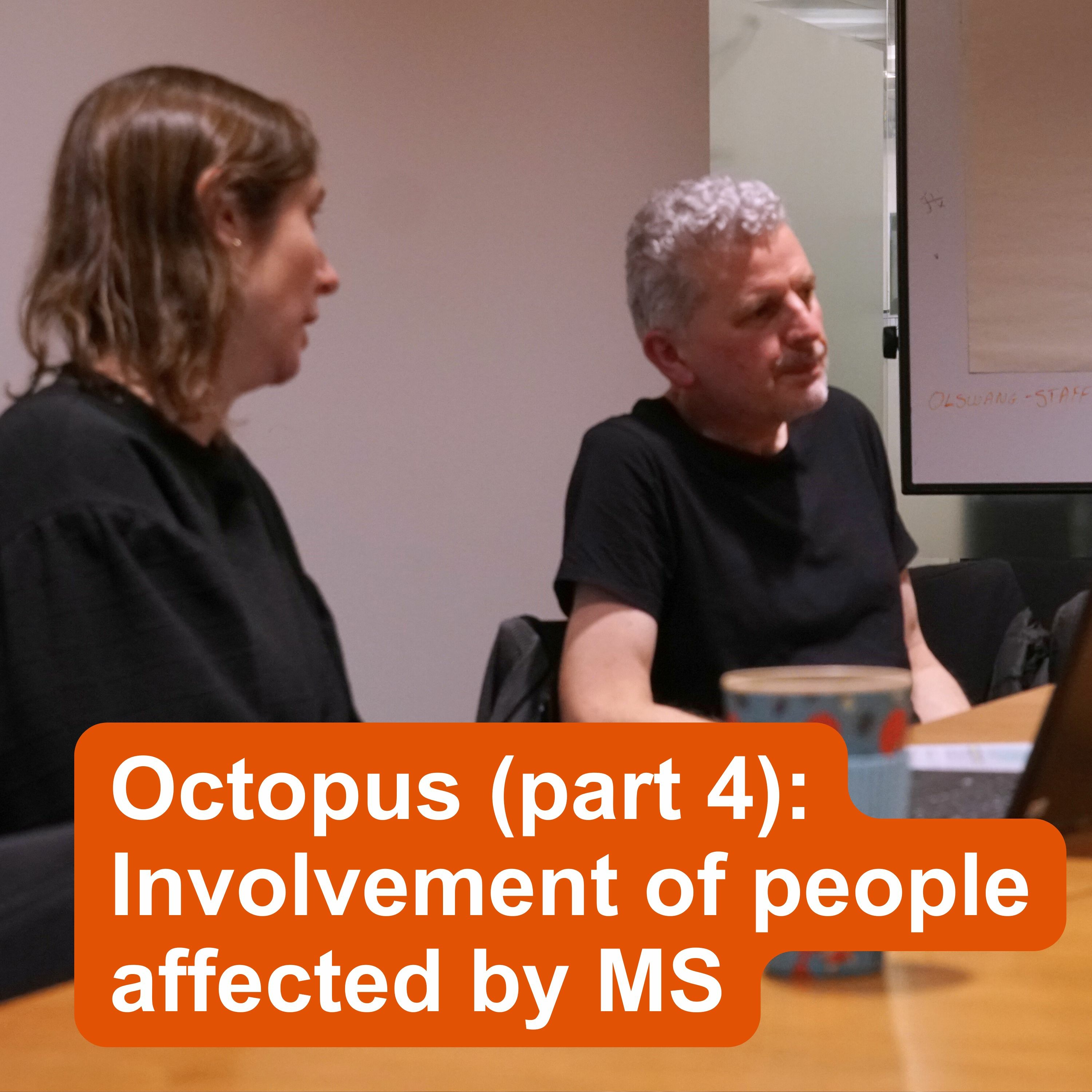
MRC CTU PodcastsOctopus (part 4): Involvement of people affected by MS with Susan ScottOctopus is a new clinical trial for people living with progressive multiple sclerosis (MS), which is designed and run by the MRC Clinical Trials Unit at UCL. Thanks to its multi-arm multi-stage platform design, Octopus has the potential to transform the way treatments for progressive MS are tested. The trial is now open in the UK and will be recruiting participants for the next few years.
The podcast mini-series will explore the trial from different perspectives by talking to neurologists, MS experts and people affected by MS.
In the final part, we explore the role of people affected by MS...
2023-11-0920 min
Trial TalkEpisode 9 (part 3): Octopus: The patients’ experience with Dawn Lyle and Matthew JustinOctopus is a new clinical trial for people living with progressive multiple sclerosis (MS), which is designed and run by the MRC Clinical Trials Unit at UCL. Thanks to its multi-arm multi-stage platform design, Octopus has the potential to transform the way treatments for progressive MS are tested. The trial is now open in the UK and will be recruiting participants for the next few years. The podcast mini-series will explore the trial from different perspectives by talking to neurologists, MS experts and people affected by MS. In Part 3, MS experts Dawn Lyle and Matthew Justin walk us through...
2023-11-0224 min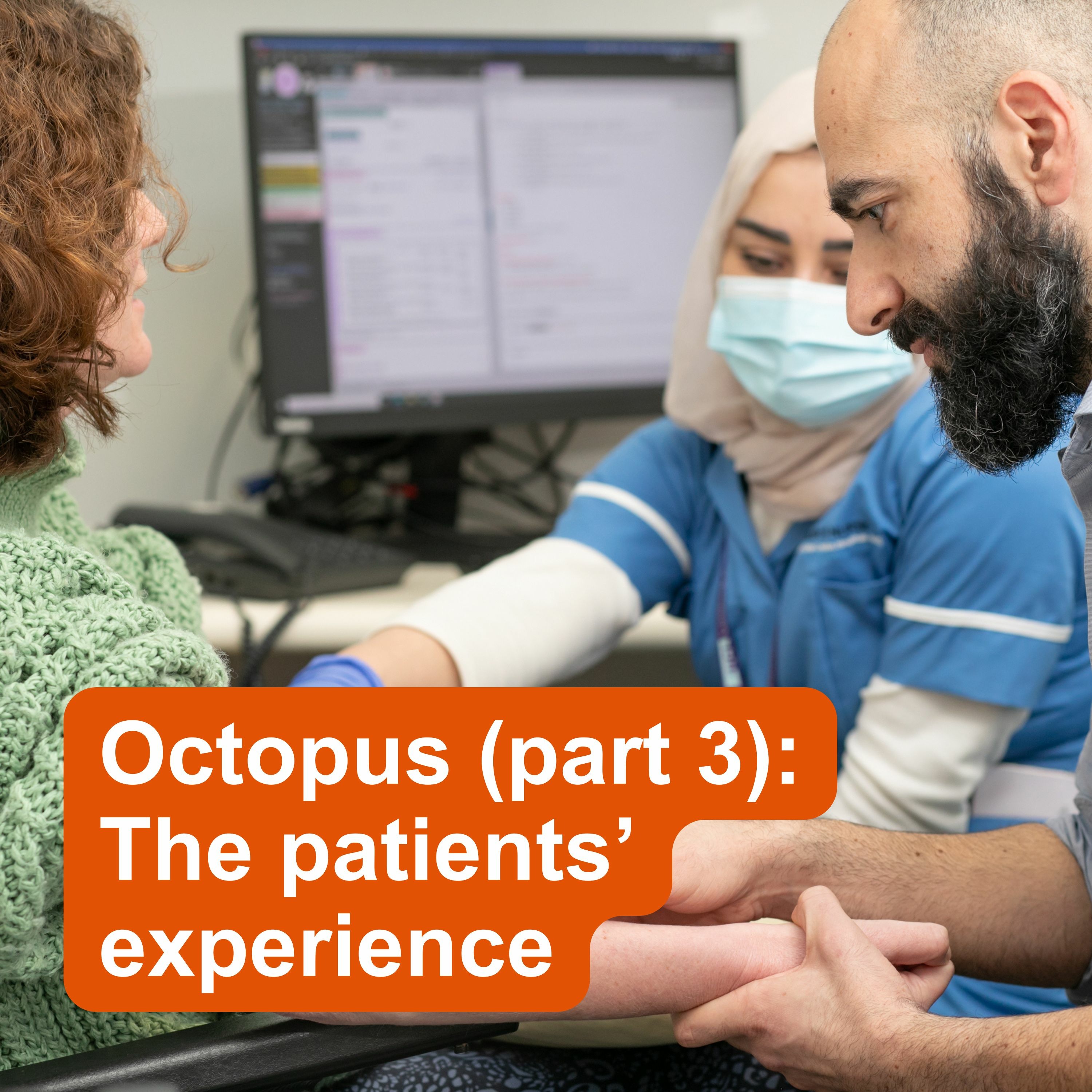
MRC CTU PodcastsOctopus (part 3): The patients’ experience with Dawn Lyle and Matthew JustinOctopus is a new clinical trial for people living with progressive multiple sclerosis (MS), which is designed and run by the MRC Clinical Trials Unit at UCL. Thanks to its multi-arm multi-stage platform design, Octopus has the potential to transform the way treatments for progressive MS are tested. The trial is now open in the UK and will be recruiting participants for the next few years.
The podcast mini-series will explore the trial from different perspectives by talking to neurologists, MS experts and people affected by MS.
In Part 3, MS experts Dawn Lyle and Matthew Justin walk us through the...
2023-11-0224 min
Trial TalkEpisode 9 (part 2): Octopus: Introducing the trial with Jeremy ChatawayOctopus is a new clinical trial for people living with progressive multiple sclerosis (MS), which is designed and run by the MRC Clinical Trials Unit at UCL.Thanks to its multi-arm multi-stage platform design, Octopus has the potential to transform the way treatments for progressive MS are tested. The trial is now open in the UK and will be recruiting participants for the next few years. The podcast mini-series will explore the trial from different perspectives by talking to neurologists, MS experts and people affected by MS. Part 1 covers the treatment and research landscape of MS and the challenges...
2023-10-2624 min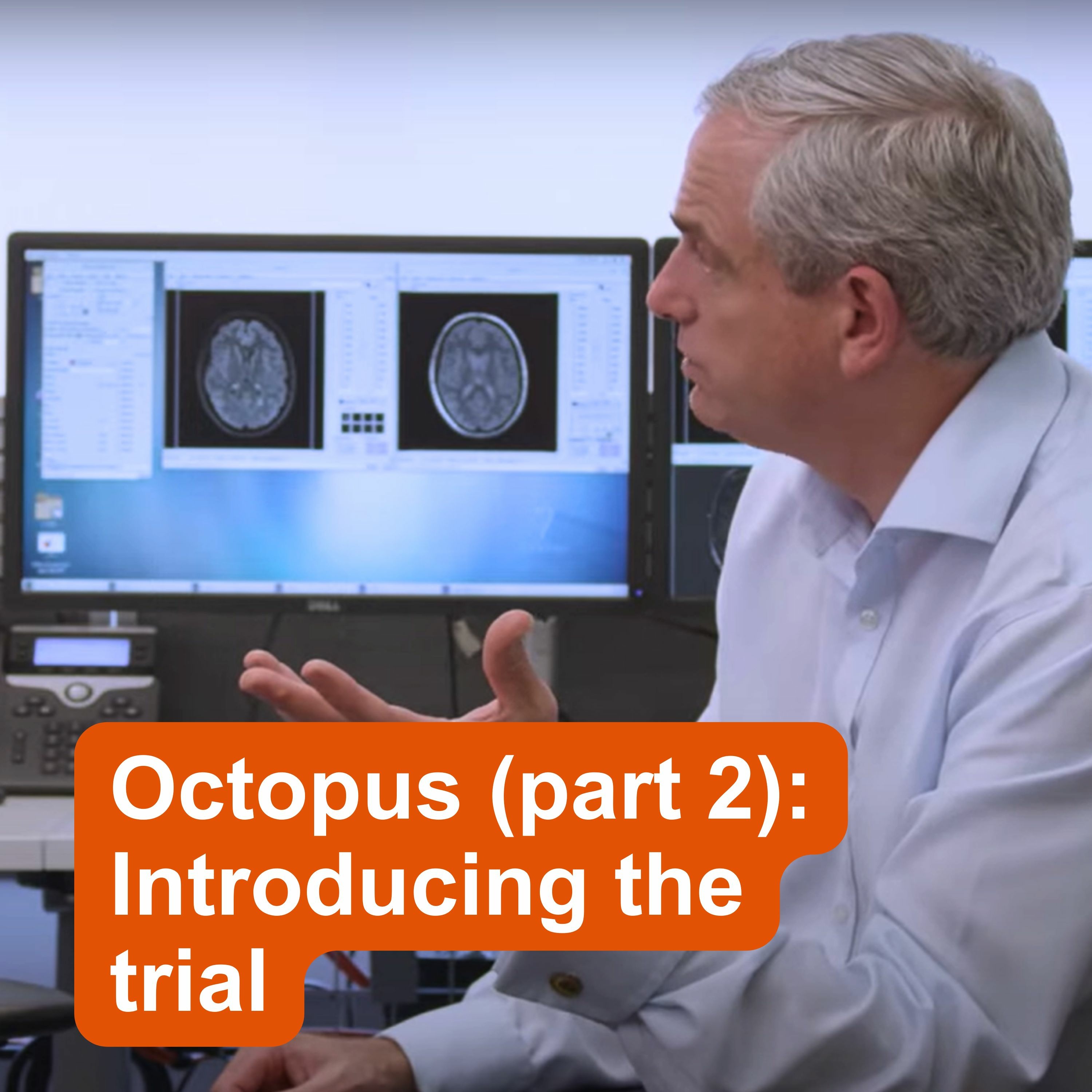
MRC CTU PodcastsOctopus (part 2): Introducing the trial with Jeremy ChatawayOctopus is a new clinical trial for people living with progressive multiple sclerosis (MS), which is designed and run by the MRC Clinical Trials Unit at UCL. Thanks to its multi-arm multi-stage platform design, Octopus has the potential to transform the way treatments for progressive MS are tested. The trial is now open in the UK and will be recruiting participants for the next few years.
The podcast mini-series will explore the trial from different perspectives by talking to neurologists, MS experts and people affected by MS.
Part 2 of the series explores our Octopus trial in depth. Professor Jeremy Chataway...
2023-10-2624 min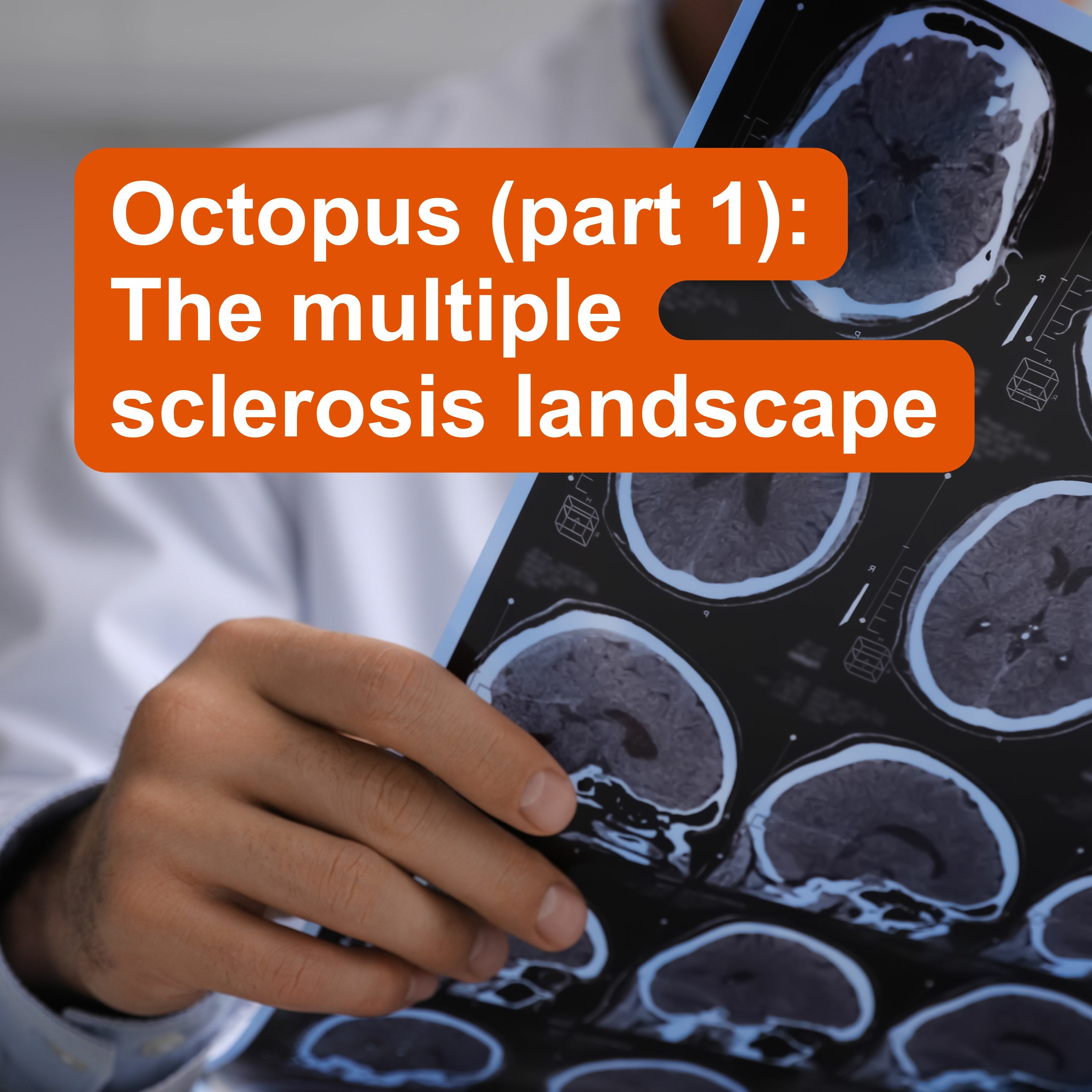
MRC CTU PodcastsOctopus (part 1): The MS landscape with Jeremy Chataway, Dawn Lyle and Matthew JustinOctopus is a new clinical trial for people living with progressive multiple sclerosis (MS), which is designed and run by the MRC CTU at UCL. Thanks to its multi-arm multi-stage platform design, Octopus has the potential to transform the way treatments for progressive MS are tested. The trial is now open in the UK and will be recruiting participants for the next few years.
The podcast mini-series will explore the trial from different perspectives by talking to neurologists, MS experts and people affected by MS.
Part 1 covers the treatment and research landscape of MS and the challenges of treating progressive...
2023-10-1917 min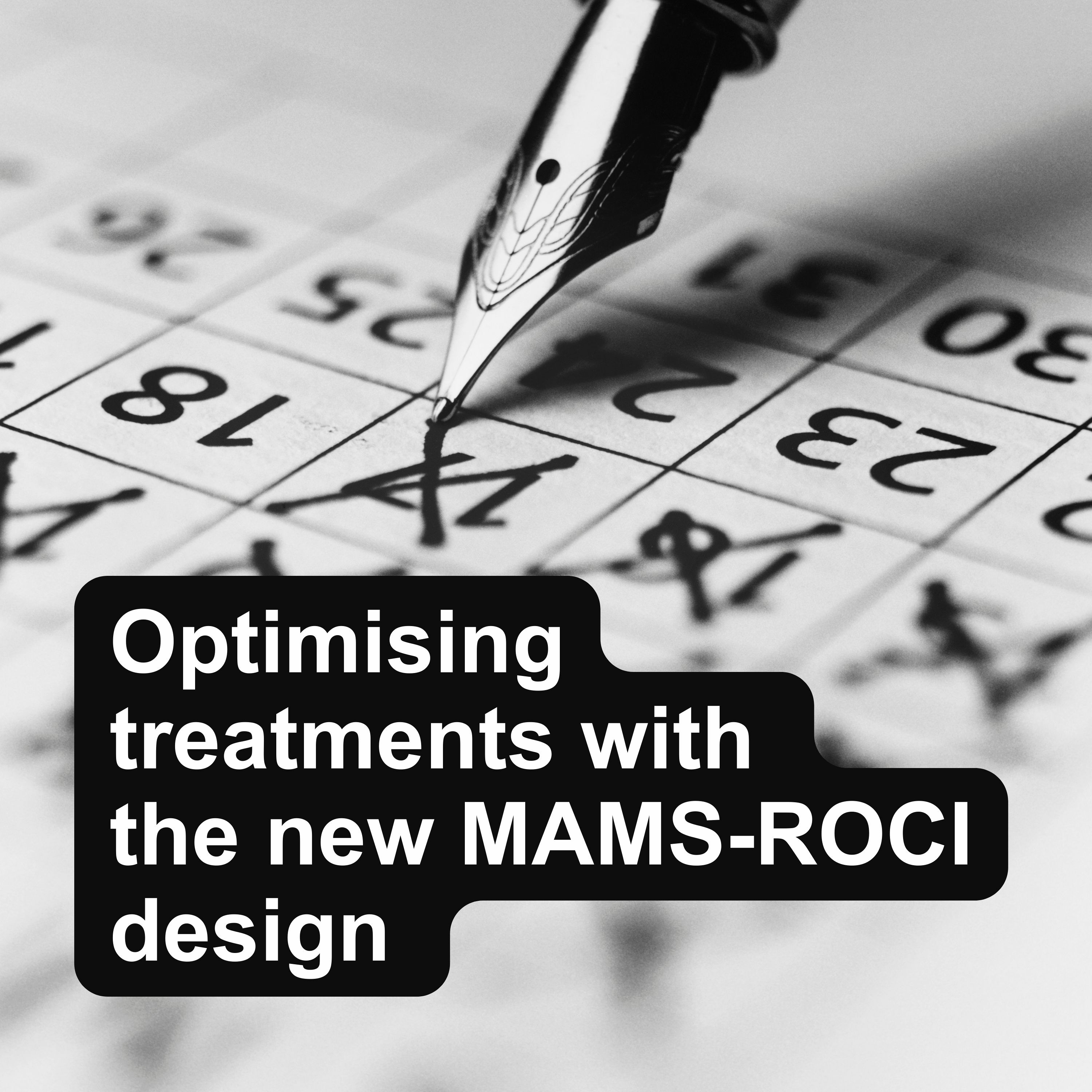
MRC CTU PodcastsOptimising treatments with the new MAMS-ROCI designInnovative platform designs present an opportunity to run faster and more efficient clinical trials.
Clinical trials methodology is a research area that looks at how to improve the design, conduct, and analysis of clinical trials. It focuses on developing and implementing new methods to help run trials faster and more efficiently, that will ultimately accelerate the discovery of new treatments.
In this episode, methodologist Matteo Quartagno tells us about a new clinical trial design called MAMS-ROCI. It is a type of multi-arm multi-stage design that compares a range of different treatment durations, dose or frequencies to identify the optimal one.
...
2023-09-2124 min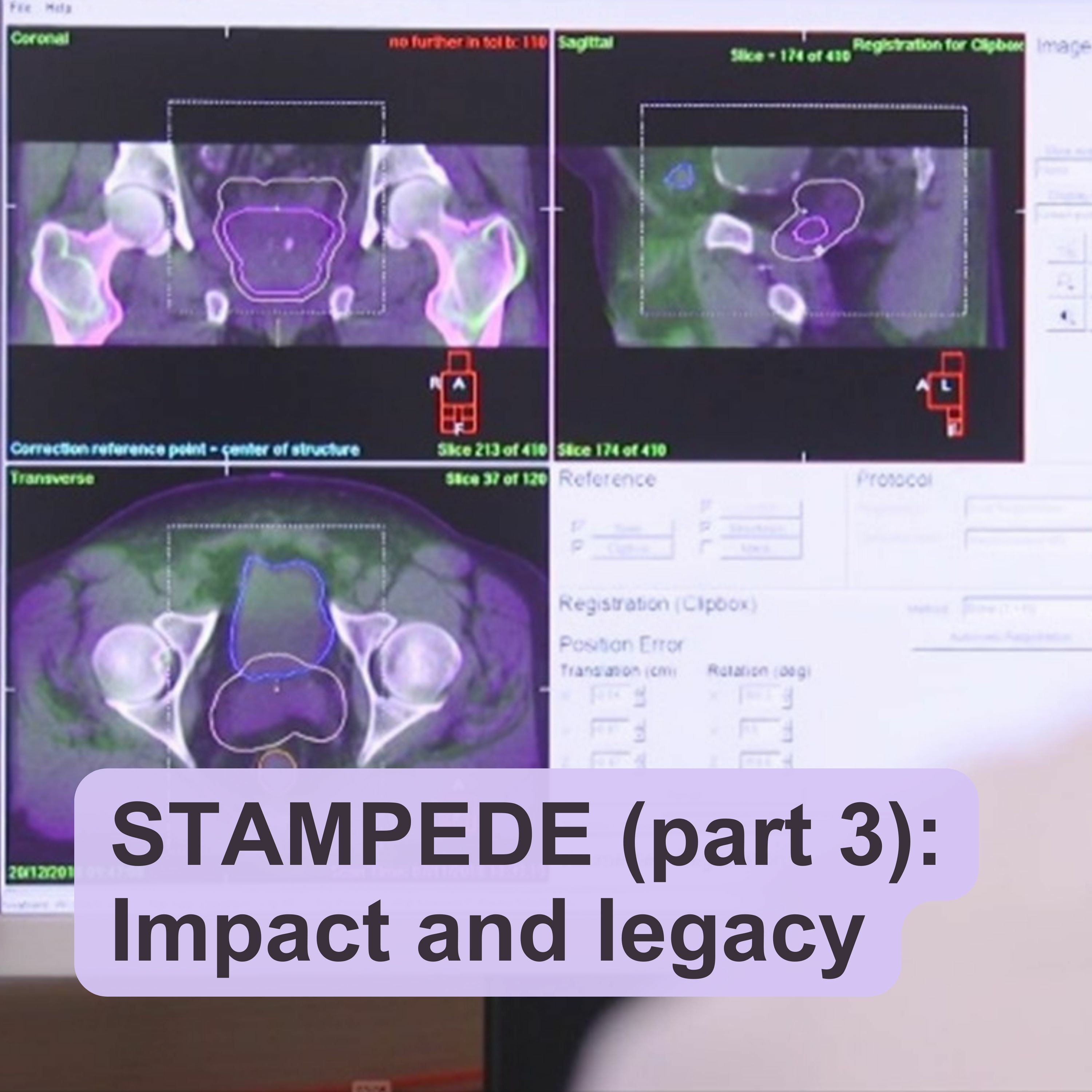
MRC CTU PodcastsSTAMPEDE (part 3): Impact and legacy with Max Parmar & Nick JamesSTAMPEDE is a long-running trial in advanced prostate cancer, in which nearly 12,000 men have taken part. Thanks to its multi-arm multi-stage platform design, STAMPEDE has tested many different treatments and directly led to improvements in the standard of prostate cancer care several times.
This Trial Talk podcast mini-series will explore the trial’s journey from its inception in the early 2000s to the end of patient recruitment in March 2023.
In the final part, Max Parmar and Nick James look back over the trial’s impact on clinical practice and platform trial design and look forward to STAMPEDE2, sharing their hopes for...
2023-08-2423 min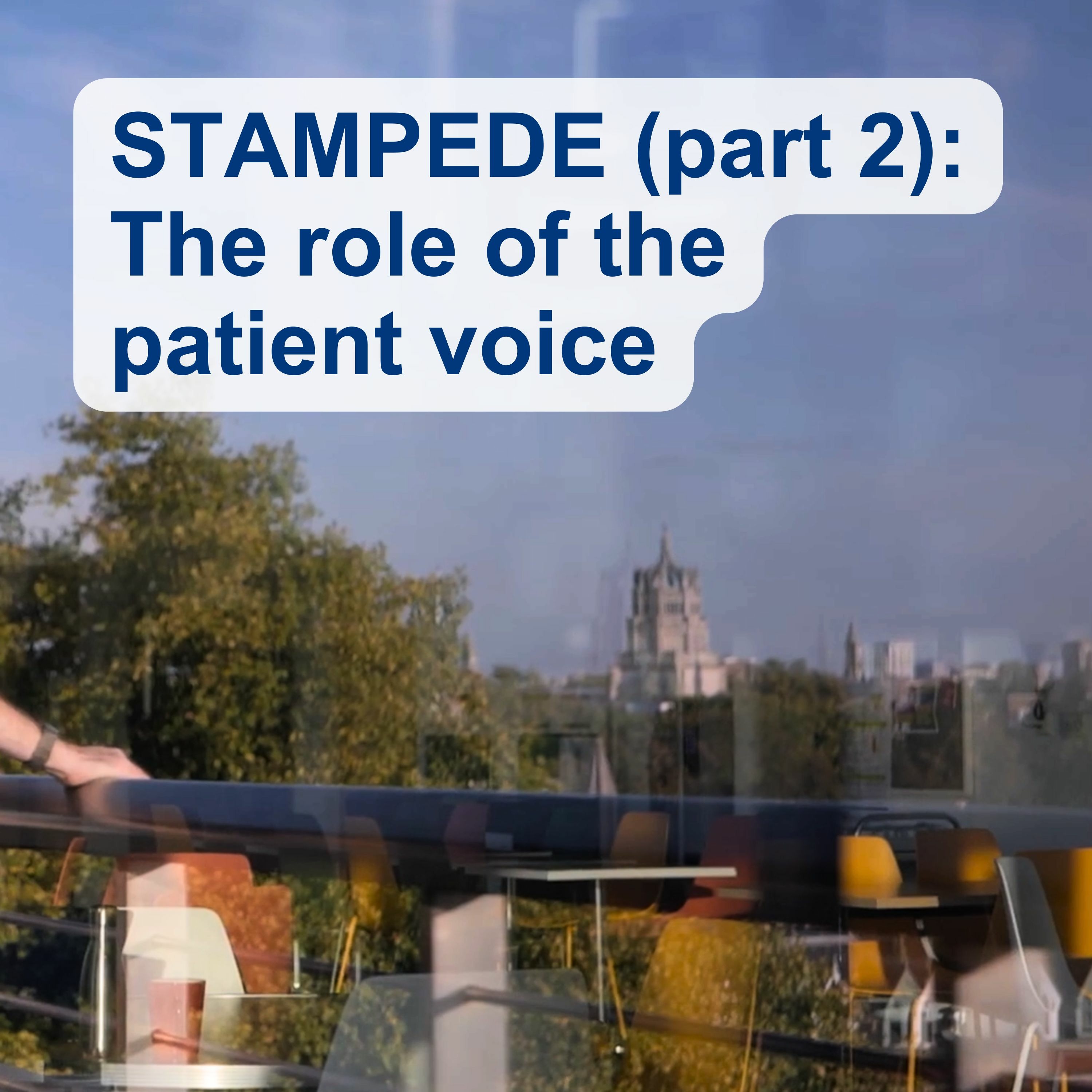
MRC CTU PodcastsSTAMPEDE (part 2): The role of the patient voice with David Matheson, Max Parmar & Nick JamesSTAMPEDE is a long-running trial in advanced prostate cancer, in which nearly 12,000 men have taken part. Thanks to its multi-arm multi-stage platform design, STAMPEDE has tested many different treatments and directly led to improvements in the standard of prostate cancer care several times.
This Trial Talk podcast mini-series will explore the trial’s journey from its inception in the early 2000s to the end of patient recruitment in March 2023.
Part 2 is about patient and public involvement (PPI) in the trial. David Matheson, a Reader at the University of Wolverhampton and STAMPEDE patient representative, shares his insight into the work this en...
2023-08-1718 min
Trial TalkEpisode 7: STAMPEDE (part 1): A new era for prostate cancer researchSTAMPEDE is a long-running trial in advanced prostate cancer, in which nearly 12,000 men have taken part. Thanks to its multi-arm multi-stage platform design, STAMPEDE has tested many different treatments and directly led to improvements in the standard of prostate cancer care several times. This Trial Talk podcast mini-series will explore the trial’s journey from its inception in the early 2000s to the end of patient recruitment in March 2023. Part 1 covers the landscape of prostate cancer treatment before STAMPEDE, as well how the trial was designed, featuring two researchers who lead the methodological and clinical sides of the trial: Ma...
2023-08-1618 min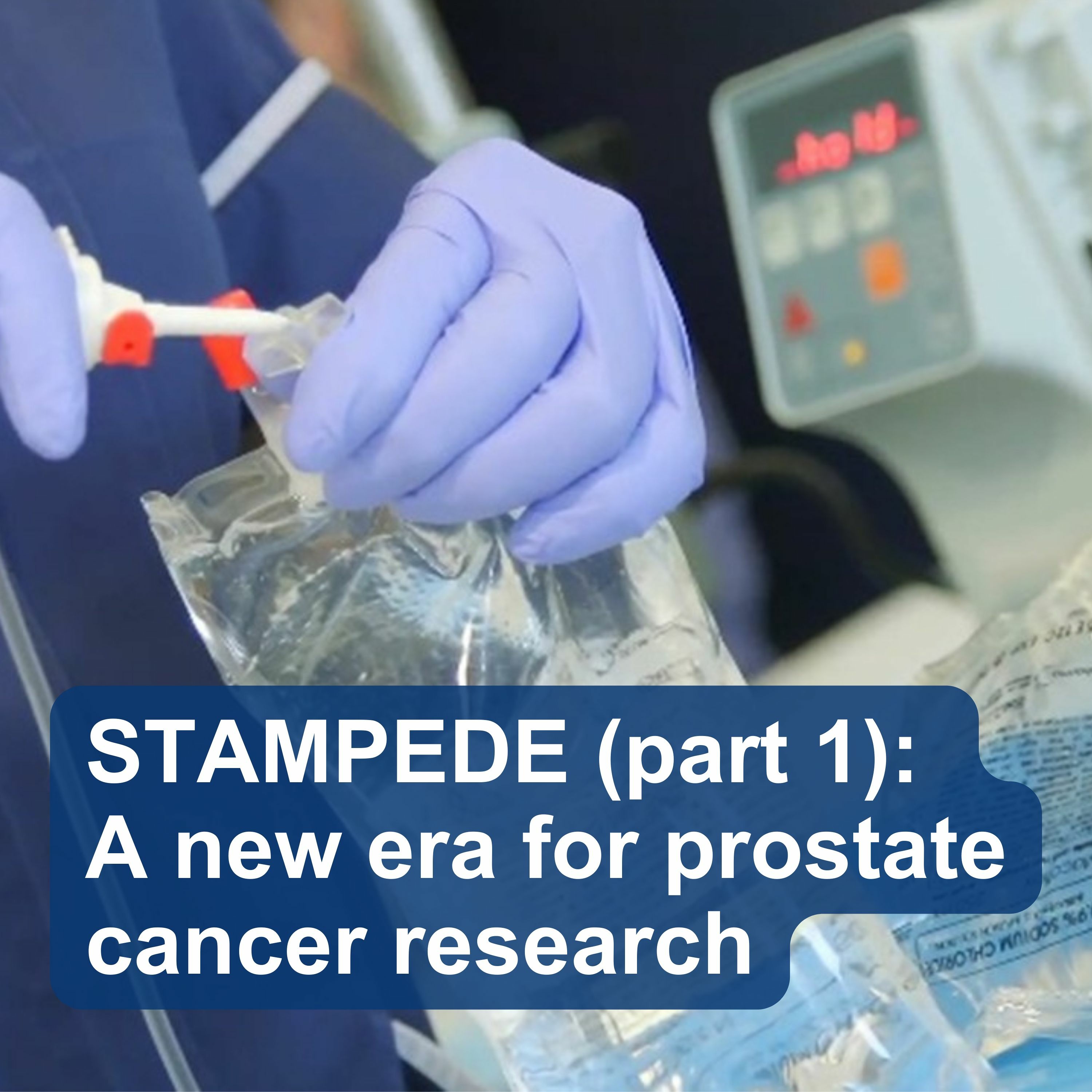
MRC CTU PodcastsSTAMPEDE (part 1): A new era for prostate cancer research with Max Parmar & Nick JamesSTAMPEDE is a long-running trial in advanced prostate cancer, in which nearly 12,000 men have taken part. Thanks to its multi-arm multi-stage platform design, STAMPEDE has tested many different treatments and directly led to improvements in the standard of prostate cancer care several times.
This Trial Talk podcast mini-series will explore the trial’s journey from its inception in the early 2000s to the end of patient recruitment in March 2023.
Part 1 covers the landscape of prostate cancer treatment before STAMPEDE, as well how the trial was designed, featuring two researchers who lead the methodological and clinical sides of the trial: Max Pa...
2023-08-1018 min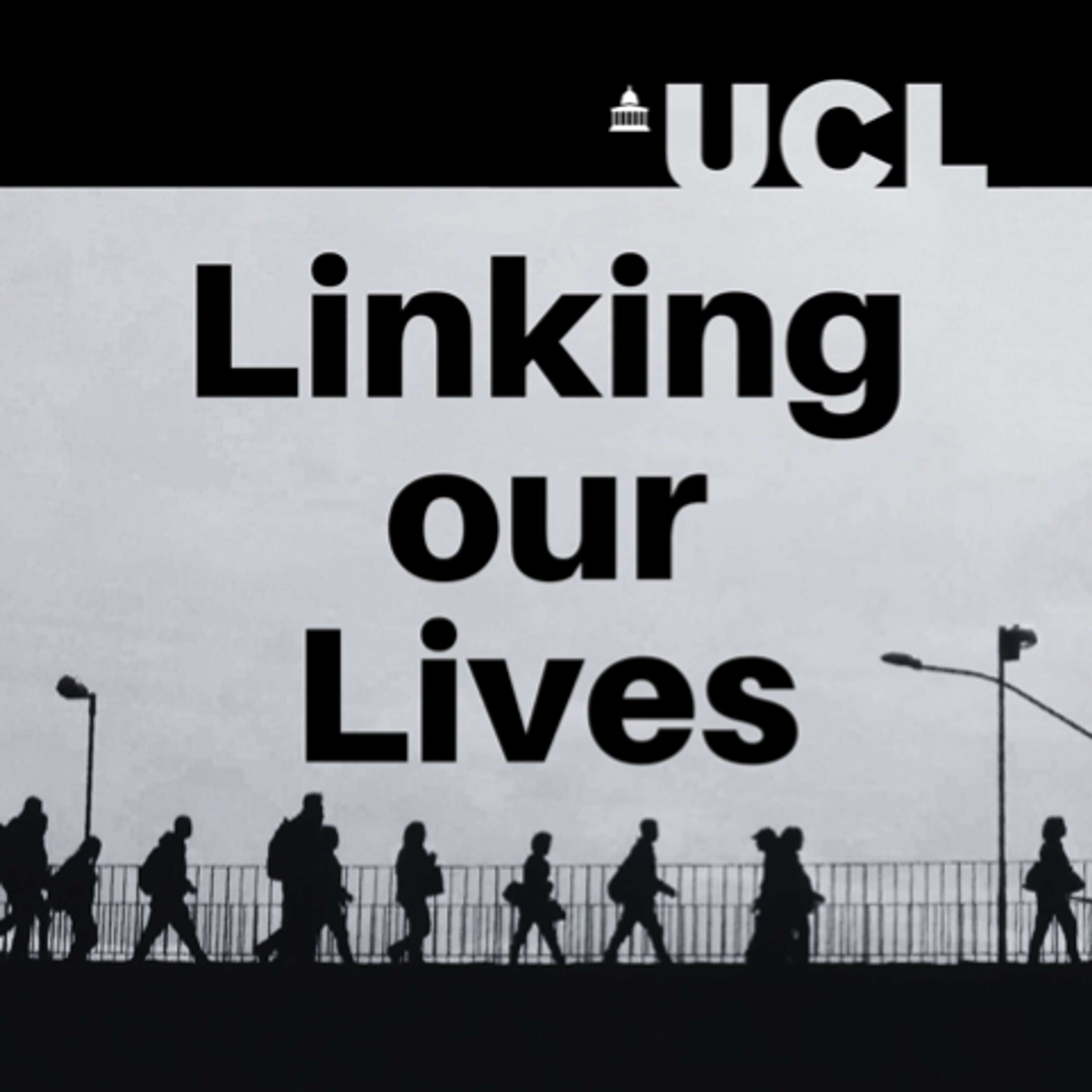
Linking our LivesHow equal are the impacts of cycling investments?In Episode 11 of Linking our Lives, we're joined by Dr Richard Patterson, from the MRC Epidemiology Unit at the University of Cambridge. Richard has been using the ONS LS to investigate the impacts of funding to support cycling in urban areas and specifically to see whether there are any differences in those impacts. Further information Equity impacts of cycling investment in England: A natural experimental study using longitudinally linked individual-level Census data is research by Richard Patterson, David Ogilvie, Anthony Laverty and Jenna Panter and is published in SSM Population Health Read/Download a f...
2023-07-2714 min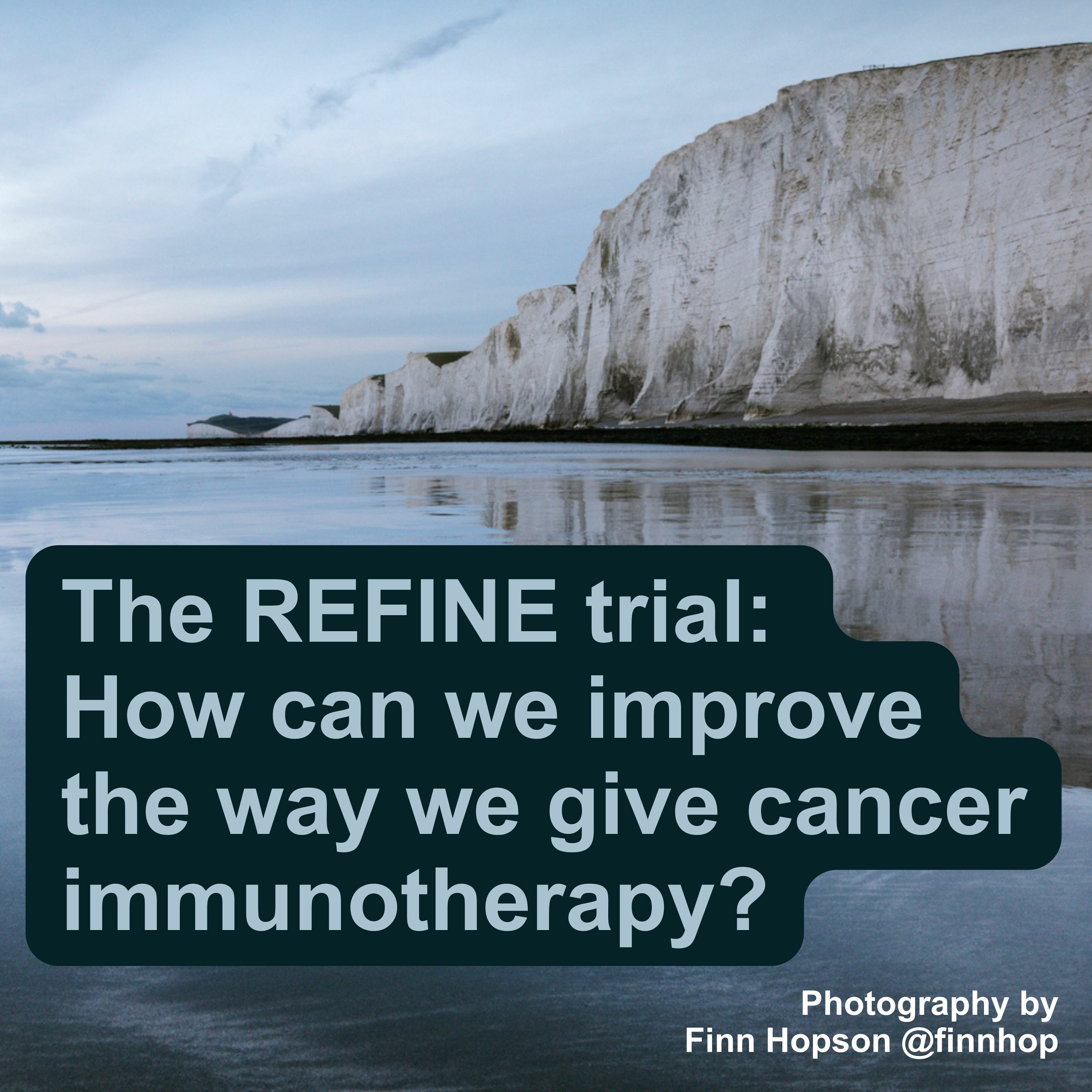
MRC CTU PodcastsThe REFINE trial: How can we improve the way we give cancer immunotherapy?Immunotherapy drugs fight cancer by helping the immune system recognise and attack cancer cells. These drugs have revolutionised cancer treatment over the last decade, improving survival for many people with different types of cancer. However, researchers are still unsure of the best way to give immunotherapy, which can come with unpredictable side effects.
In this episode, Clinical Fellow Sophie Merrick discusses how the REFINE trial hopes to address this problem, by testing if giving immunotherapy less frequently can still treat the cancer effectively, whilst improving the quality of life for patients, reducing side effects and costs.
-
Further information is...
2023-07-1816 min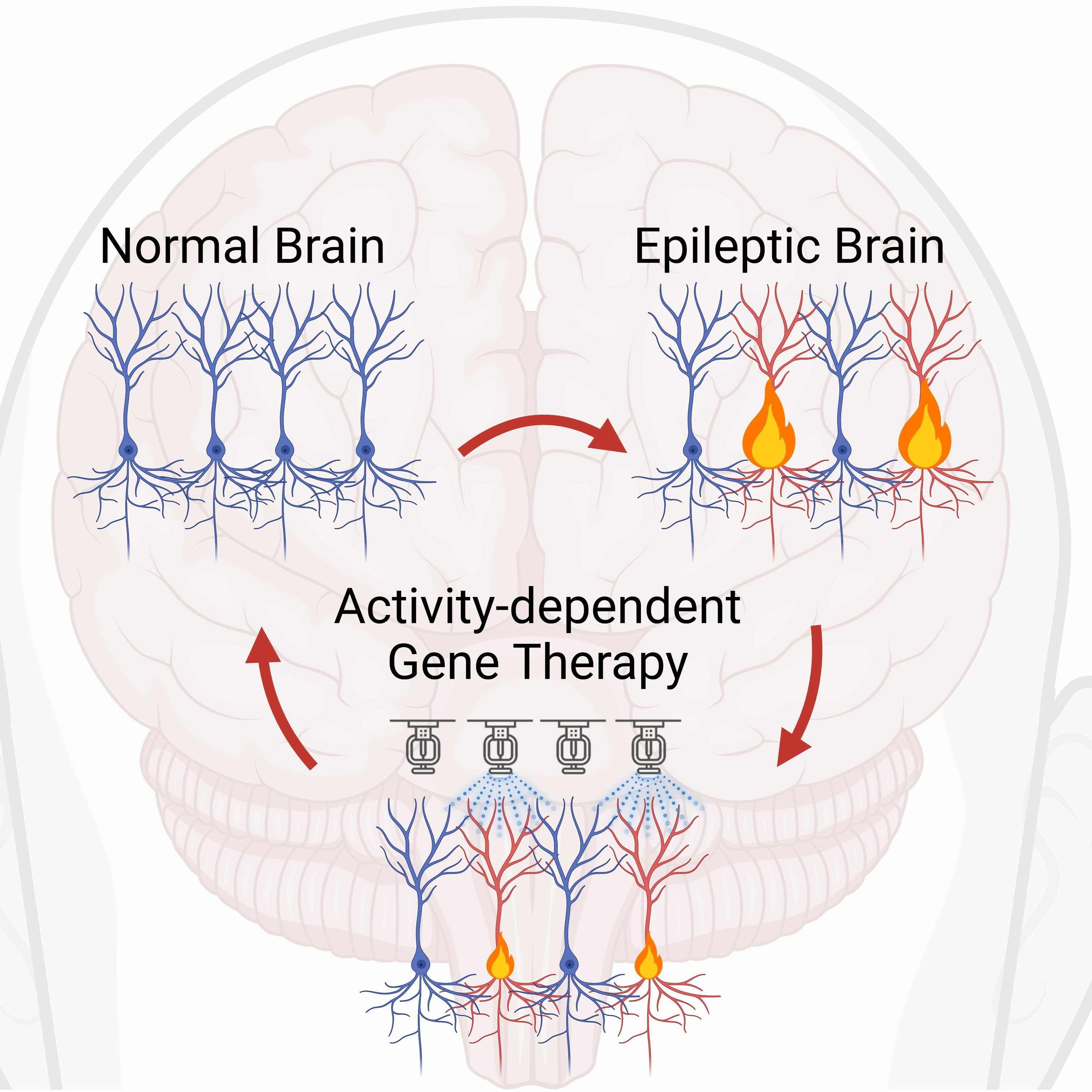
UCL MindsNovel ways to treat the brain with gene therapyDate of Lecture: Thursday 15 June 2023
About the Lecture:
Several neurodevelopmental and neuropsychiatric circuit disorders are characterized by intermittent episodes of pathological activity. Although genetic therapies offer the ability to modulate neuronal excitability, a limiting factor is that they do not discriminate between neurons involved in circuit pathologies and ‘healthy’ surrounding/intermingled neurons. Dr Lignani will present his recent study where he described a gene therapy strategy that down-regulates the excitability of overactive neurons in closed loop and tested it in models of epilepsy as proof of principle. This novel way of thinking can be applied to many neurological diseases such as s...
2023-07-0459 min
Der Code des LebensDie Nako Gesundheitsstudie: Wer wird krank und warum?Lebensstil, Umweltgifte und Gene
Warum werden manche Menschen krank, während andere gesund bleiben? Dieser Frage geht die größte deutsche Langzeitstudie auf den Grund. Die NAKO Gesundheitsstudie untersucht ihre 200.000 Teilnehmenden in regelmäßigen Abständen und betrachtet dabei ihren Lebensstil, ihr mentales Wohlbefinden und ihre gesundheitliche Verfassung. Neu hinzu kommt auch noch ein Blick ins Genom! Frau Professor Annette Peters von Helmholtz München erklärt, welchen Einfluss die NAKO auf unser Verständnis von Krankheiten hat und was sie im Zusammenhang mit Corona bereits erreicht hat.
Über die NAKO:
https://nako.de/allgemeines/was-ist-die-nako-gesundheitsstudie/
https://na...
2023-07-0437 min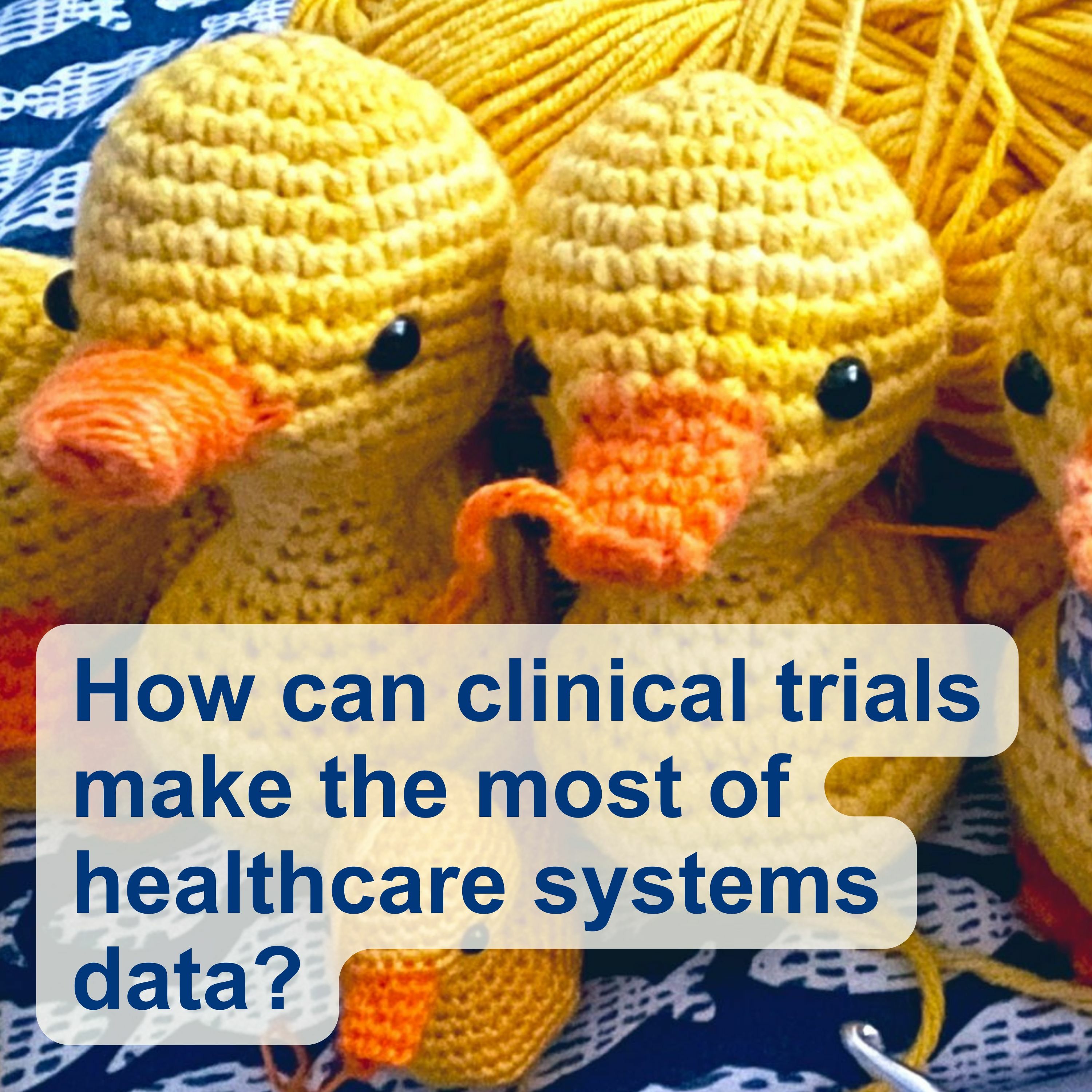
MRC CTU PodcastsHow can clinical trials make the most of healthcare systems data?Running a clinical trial means collecting a lot of data from the trial participants. But some of this data might be collected and stored in healthcare systems, as well as in clinical trial case report forms.
What if we could avoid this doubling up, save time and resources, improve recruitment and reduce missing data?
In this episode we explore the opportunities and challenges of using healthcare systems data in clinical trials, with Dr Macey Murray and Professor Matt Sydes.
Resources:
British Heart Foundation Data Science Centre webinar (Macey Murray) - https://www.youtube.com/watch?v=OzQeMUUG7tQ
How to...
2023-06-2625 min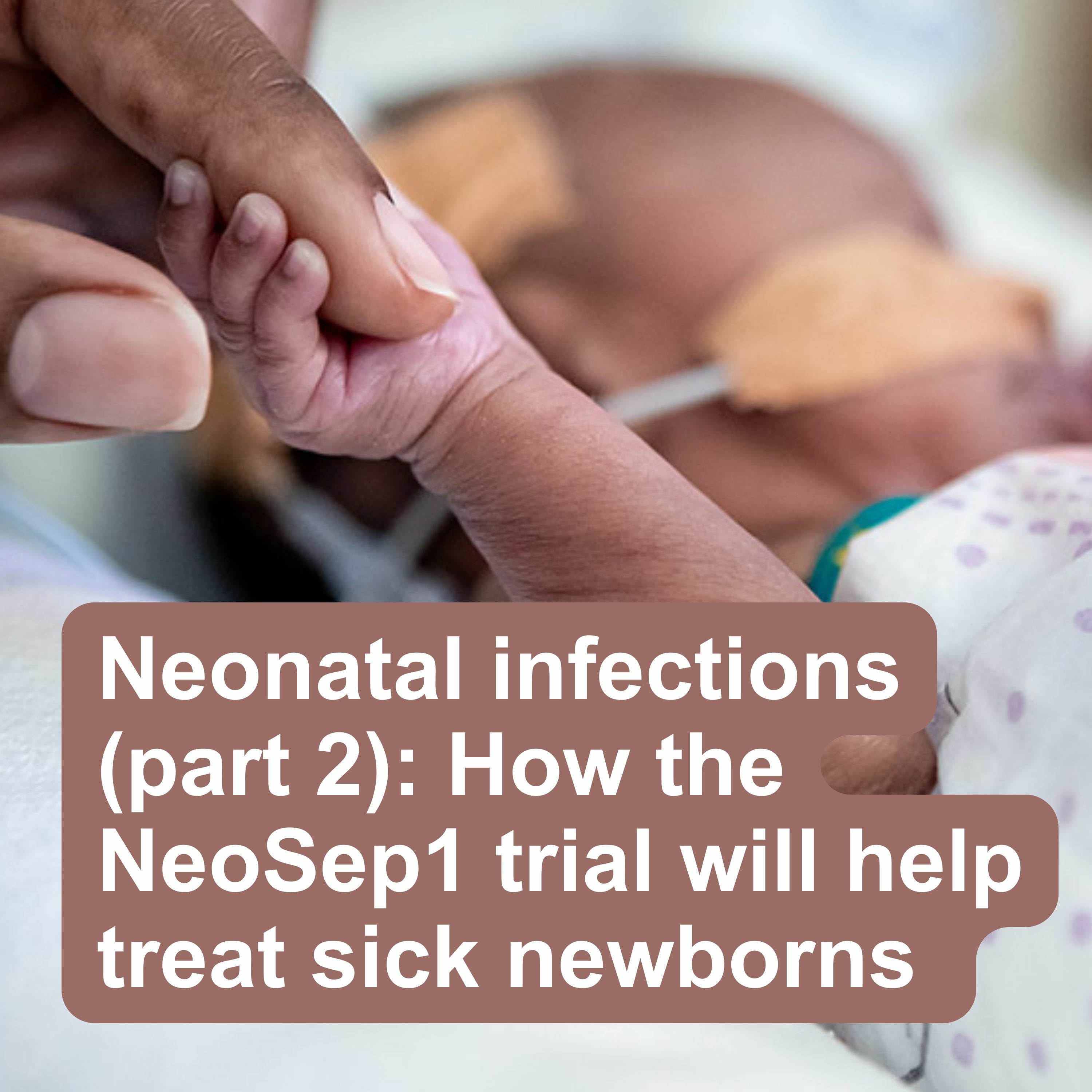
MRC CTU PodcastsNeonatal infections (part 2): How the NeoSep1 trial will help treat sick newbornsNeonatal sepsis is a life-threatening infection that affects up to 3 million babies per year globally.
In an effort to identify better treatments, the NeoSep1 clinical trial evaluates new antibiotic combinations for newborn babies with sepsis. To learn more about the trial, we speak to Adrie Bekker and Cristina Obiero, principal investigators of the trial in South Africa and Kenya, Reenu Thomas, a neonatologist from South Africa, and Francesca Schiavone, the clinical project manager of the NeoSep1 trial in London.
-
Further information about the NeoSep1 clinial trial is available at www.mrcctu.ucl.ac.uk and https://gardp.org/.
For...
2023-06-0921 min
Trial TalkEpisode 4: Neonatal infections (part 1): The NeoOBS study and the global challenge of neonatal sepsis214,000 newborn babies die of sepsis caused by infections that are resistant to antibiotics every year. This is a major problem worldwide, but disproportionally affects low- and middle- income countries. Reenu Thomas and Adrie Bekker, two neonatologists from South Africa, and Francesca Schiavone, clinical project manager at the MRC CTU at UCL in London, discuss the challenges of treating neonatal sepsis and present the results from an observational study (NeoOBS), which assessed mortality rates of babies with sepsis. For more information and to access the transcript: https://www.mrcctu.ucl.ac.uk/news/news-stories/2023/may/new-podcast-episode-neonatal-infections-part-1-the-neoobs-study-and-the-global-challenge-of-neonatal-sepsis/
2023-05-2223 min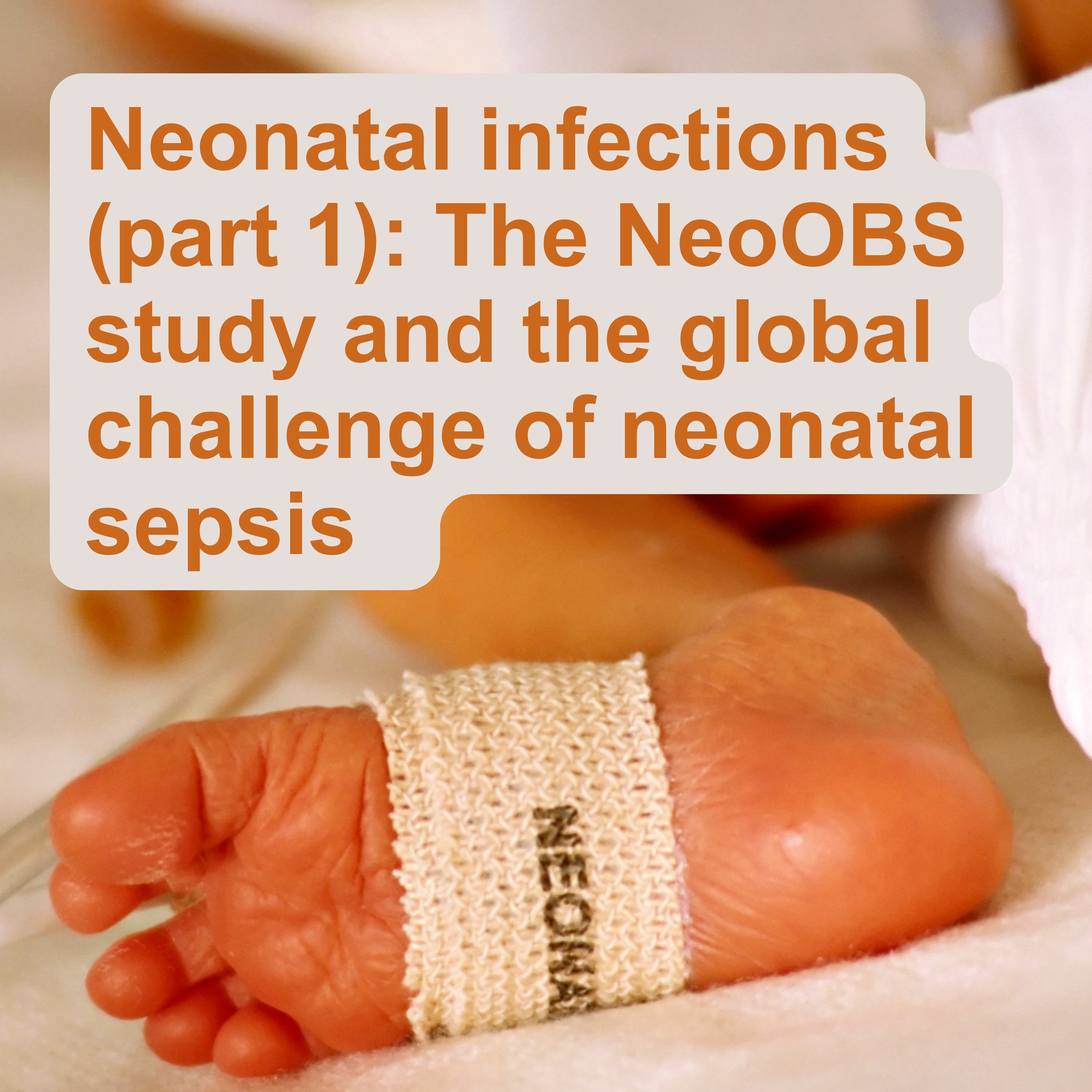
MRC CTU PodcastsNeonatal infections (part 1): The NeoOBS study and the global challenge of neonatal sepsis214,000 newborn babies die of sepsis caused by infections that are resistant to antibiotics every year. This is a major problem worldwide, but disproportionally affects low- and middle- income countries.
Reenu Thomas and Adrie Bekker, two neonatologists from South Africa, and Francesca Schiavone, clinical project manager at the MRC CTU at UCL in London, discuss the challenges of treating neonatal sepsis and present the results from an observational study (NeoOBS), which assessed mortality rates of babies with sepsis.
Further information about the NeoOBS study is available at www.mrcctu.ucl.ac.uk and https://gardp.org/.
For questions or feedback on...
2023-05-2223 min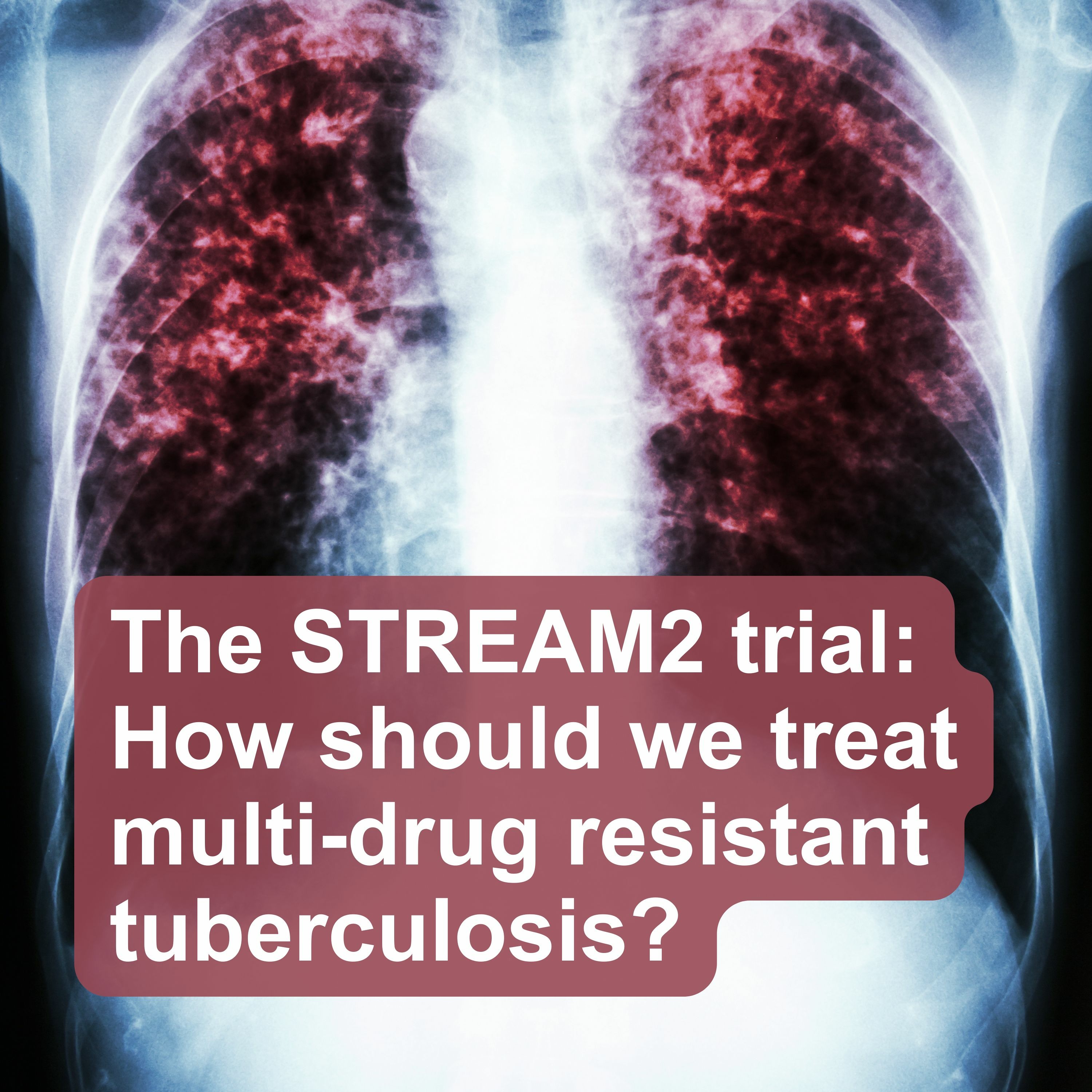
MRC CTU PodcastsThe STREAM2 trial: How should we treat multi-drug resistant tuberculosis?For World TB Day, this episode explores the global burden of tuberculosis (TB) and how growing antibiotic resistance can complicate treatment options. Andrew Nunn, a Professor of Epidemiology, discusses his work on the STREAM2 trial, which investigated how treatment for multi-drug resistant TB could be shortened and made more acceptable for patients.
Further information is available on the STREAM Stage 2 study page at www.mrcctu.ac.uk and results from STREAM2 are published open access in The Lancet.
For questions or feedback on the series, message us at mrcctu.engage@ucl.ac.uk
For more information and to access the...
2023-03-2419 min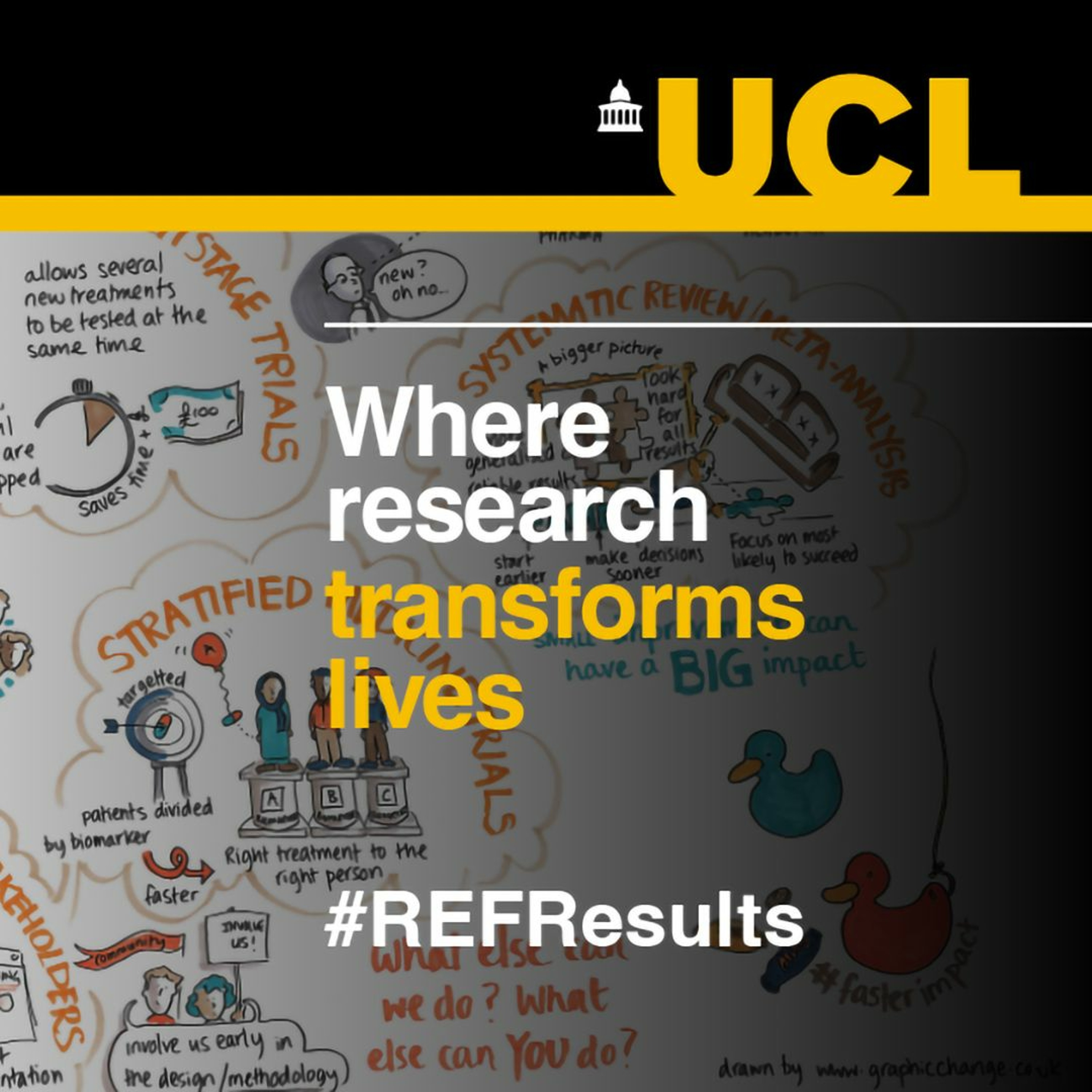
UCL MindsImproving Survival for Men with Prostate Cancer by Improving Clinical Trials and Meta-AnalysesDate of Lecture: 3 November 2022
About the Lecture:
Randomised clinical trials are the cornerstone of evidence-based medicine. Professor Parmar will present how the design of the randomised clinical trial has been changed to improve outcomes for patients more quickly. This will be exemplified throughout by the STAMPEDE trial. The trial was started in 2005 when men with metastatic prostate cancer had an expected survival of approximately 3 years and no new effective treatments had been identified for over 40 years. Over the subsequent 17 years, through the STAMPEDE trial (together with other contemporaneous trials) the expected survival period has grown to 7 years, testing and introducing 4...
2022-11-1447 minMRC CTU PodcastsSharing results of clinical trials with participants (part 1)Clinical trials depend on people volunteering to take part, often at increased risk or inconvenience. Previous research shows that most trial participants want to know what the trial eventually finds, but that many never get to find this out. In this episode we explore why sharing results with participants is important, based on findings from the Show RESPECT study (published https://doi.org/10.1371/journal.pmed.1003798 )
2021-10-1916 min
ALIMENTOS Y EMOCIONES PODCASTALIMENTOS Y EMOCIONES - Questionnaire measurement of appetite - S03E03T3 #03 Questionnaire measurement of appetite/Cuestionarios como medidas del apetito
Today on #alimentosyemocionespodcast we talk to Dr Andrea Smith (Twitter: @AndreaD_Smith) about the importance of questionnaires as measures of appetite. We also had the opportunity to talk about food fussiness, and other interesting topics.
Andrea is a Senior Research Fellow in Behavioural Obesity at UCL with an interest in health behaviours and the prevention of childhood obesity.
She first joined the Research Department of Behavioural Science and Health (UCL) to complete her PhD within the Obesity group in 2014, and has since worked on...
2021-09-2147 min
ESICM TalkRandomised controlled trial of oxygen therapy and HFNT in African children with pneumoniaIn Africa, in children hospitalised with severe pneumonia with oxygen saturations between 80 and 91% who did not receive oxygen, mortality assessed at 48 h (1.4%) was comparable to the usual method of oxygen delivery (low-flow oxygen; LFO (2.5%)) and in those receiving high-flow nasal therapy (HFNT, 1.1%). The potential impact of HFNT on patient-centred outcomes and on resources, particularly oxygen supplies, should stimulate further exploration particularly in children with severe pneumonia managed in low resource settings. Read the article in the ICM Journal: https://rdcu.be/ckTgA.
Speakers:
Prof Mark PETERS. Professor of Paediatric Intensive Care, Infection, Immunity & Inflammation Dept - UCL GOS...
2021-05-2623 min
ESICM TalkRCT of oxygen therapy and HFNT in African children with pneumoniaIn Africa, in children hospitalised with severe pneumonia with oxygen saturations between 80 and 91% who did not receive oxygen, mortality assessed at 48 h (1.4%) was comparable to the usual method of oxygen delivery (low-flow oxygen; LFO (2.5%)) and in those receiving high-flow nasal therapy (HFNT, 1.1%). The potential impact of HFNT on patient-centred outcomes and on resources, particularly oxygen supplies, should stimulate further exploration particularly in children with severe pneumonia managed in low resource settings. Read the article in the ICM Journal: https://rdcu.be/ckTgA.Speakers:Prof Mark PETERS. Professor of Paediatric Intensive Care, I...
2021-05-2623 minMRC CTU PodcastsOvarian cancer screening: The results of the UKCTOCS trialAround 4000 women die of ovarian cancer in the UK each year. It is often diagnosed at an advanced stage, making treatment difficult. The UK Collaborative Trial of Ovarian Cancer Screening, known as the UKCTOCS trial, followed up more than 200,000 women over an average of 16 years, in an effort to improve diagnosis of ovarian cancer. This podcast episode explores the long-term results of the trial.
2021-05-1317 min
Queen's University Belfast - Shaping a Better World PodcastBeyond Coronavirus: Vaccination and the Covid-19 PandemicAudio version of a live online event, Thursday 14 January 2021 at 12.00pm.
The event featured keynote speaker Professor Sheena McCormack, Clinical Project Lead for the COVAC trials, MRC Clinical Trials Unit at UCL and Dr Mark Flear, Reader in Law, Queen’s University Belfast as discussant.
Ann Watt, Pivotal PPF facilitated the discussion.
With and introduction from Vice-Chancellor Professor Ian Greer and a conclusion from Professor Stuart Elborn.
2021-01-191h 26
A Clear VoiceProf Martin Birchall returns to discuss Laryngological aspects of COVID-19 six months onSend us a textIn this episode, we welcome back Prof Martin Birchall as he reflects, comments and shares his insights on COVID-19 six months on, the impact on individuals and laryngology as a whole, as well as the future of laryngology post-COVID using new technologies.In this episode:1:43 Q1. Reflecting back on our previous episode, is there anything you would like to expand, comment or reflect on?3:04 Q2. How have things changed at UCLH for you? 5:38 Q3. There are a co...
2020-12-1119 min
A Clear VoiceProf Martin Birchall returns to discuss Laryngological aspects of COVID-19 six months onSend us a textIn this episode, we welcome back Prof Martin Birchall as he reflects, comments and shares his insights on COVID-19 six months on, the impact on individuals and laryngology as a whole, as well as the future of laryngology post-COVID using new technologies.In this episode:1:43 Q1. Reflecting back on our previous episode, is there anything you would like to expand, comment or reflect on?3:04 Q2. How have things changed at UCLH for you? 5:38 Q3. There are a co...
2020-12-1119 min
Joint ActionCommon misconceptions about osteoarthritis with Tonia VincentDespite the prevalence, impact and disability associated with osteoarthritis, it is still relatively poorly understood. New insights are affording a window into previously held strong beliefs that we now consider as misconceptions. Many people in the community simply believe that osteoarthritis is a consequence of getting older. Others believe that the joint has no capacity for repair and some have suggested that we should just use treatments widely used for other inflammatory rheumatic diseases. These misconceptions have consequences both in terms of language that is used - with terms such as "wear and tear", osteoarthrosis, and degenerative joint disease...
2020-12-0650 min
Science Off CameraEpisode 12: Dr. Siân CulleyThis interview is with Dr. Sian Culley (recorded 05/06/20), @SuperResoluSian a postdoctoral researcher at the MRC Laboratory for Molecular Cell Biology at UCL, London with the Henriques Lab #femalewithmicroscopeTeledyne PhotometricsWeb: https://www.photometrics.com/Twitter: https://twitter.com/PhotometricsLinkedIn: https://www.linkedin.com/company/teledynephotometrics/
2020-07-0949 min
JNNP podcastPlasma glial fibrillary acidic protein is raised in progranulin-associated frontotemporal dementiaColin Mahoney, JNNP Podcast editor, is joined by Dr Jonathan Rohrer, MRC Clinician Scientist, Dementia Research Centre, UCL Institute of Neurology. Carolin Heller, Dementia Research Centre and UK Dementia Research Institute. to discuss how increased levels of GFAP may be used to detect advancing neurodegeneration and clinical change in those with Progranulin associated Frontotemporal Dementia. https://jnnp.bmj.com/content/91/3/263
2020-03-3013 min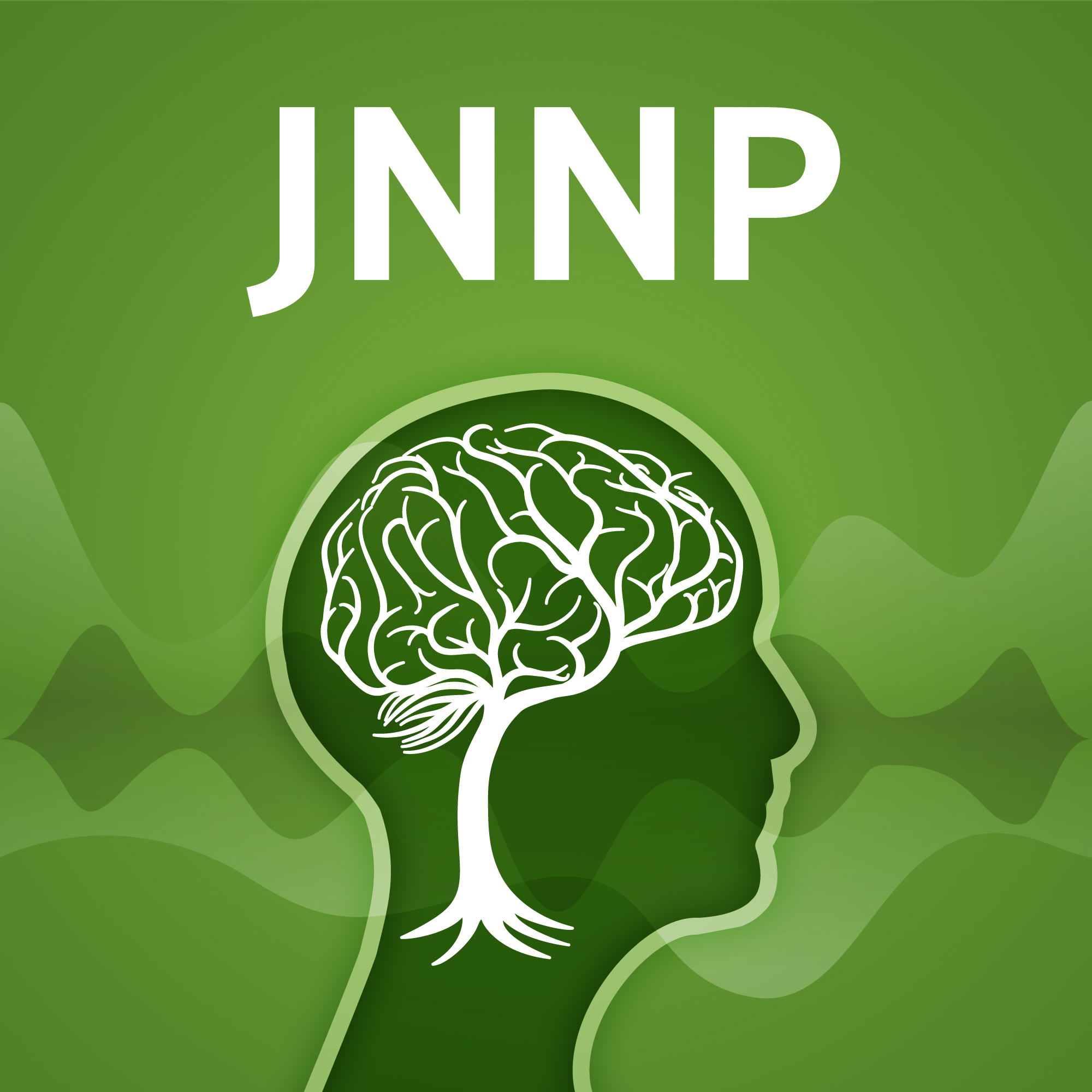
JNNP PodcastPlasma glial fibrillary acidic protein is raised in progranulin-associated frontotemporal dementiaColin Mahoney, JNNP Podcast editor, is joined by Dr Jonathan Rohrer, MRC Clinician Scientist, Dementia Research Centre, UCL Institute of Neurology. Carolin Heller, Dementia Research Centre and UK Dementia Research Institute. to discuss how increased levels of GFAP may be used to detect advancing neurodegeneration and clinical change in those with Progranulin associated Frontotemporal Dementia. https://jnnp.bmj.com/content/91/3/263
2020-03-2613 min
Help 4 HD Live!Zinc FingersEd is a consultant neurologist at the National Hospital for Neurology and Neurosurgery and Associate Director of the UCL Huntington’s Disease Centre, where his research team is focused on accelerating drug development through discovering new biomarkers for Huntington’s disease. He leads an MRC-supported longitudinal biomarker study, HD-CSF, and is Global Chief Investigator of the HDClarity study of cerebrospinal fluid in Huntington’s disease. He led the development of the first measurement platform to quantify the mutant huntingtin protein in cerebrospinal fluid and the discovery of neurofilament light protein as the first blood biomarker to predict onset of Huntington’s. He is...
2019-11-0625 min
BJPsych JournalsChoosing Wisely: What every psychiatrist needs to knowIn this podcast, Dr Howard Ryland, the BJPsych’s Trainee Editor, talks to Dr Daniel Maughan, RCPsych Associate Registrar for Sustainability and Consultant Psychiatrist at Oxford Health and Dr Joe Hayes, MRC Clinical Research Fellow at UCL and RCPsych Choosing Wisely Lead about the Choosing Wisely initiative.
Article published in the January 2017 issue of BJPsych Advances
Read the article here:
Diagnosis and treatment: Are psychiatrists choosing wisely?
Daniel Maughan and Adrian James
https://doi.org/10.1192/apt.bp.115.015271
Podcast transcripts available: https://bit.ly/3CXSijb
Follow us on Twitter @TheBJPsych #BJPAdvances
Disclaimer: BJPsych Advances is not responsible for statements made by po...
2019-04-0911 min
Intensive Care Society RadioINTEREST: Efficacy and Safety of FP-1201-lyo (Interferon Beta-1a) in Patients Having Acute Respiratory Distress Syndrome (ARDS) - Geoff BellinganDr Bellingan is a consultant in Respiratory Medicine and Critical Care at University College London Hospitals NHS Foundation Trust. Dr Geoff Bellingan is Medical Director for the Surgery and Cancer Board at University College London Hospitals (UCLH) and is responsible for the cancer strategy across the trust and UCLH engagement with UCLP and London Cancer. He is also responsible for surgical, anaesthetic and theatre strategy for the UCH site and for the imaging department. Geoff is a consultant in intensive care medicine (UCLH) and Reader in Intensive Care at UCL. He is the Hon secretary...
2019-02-1019 min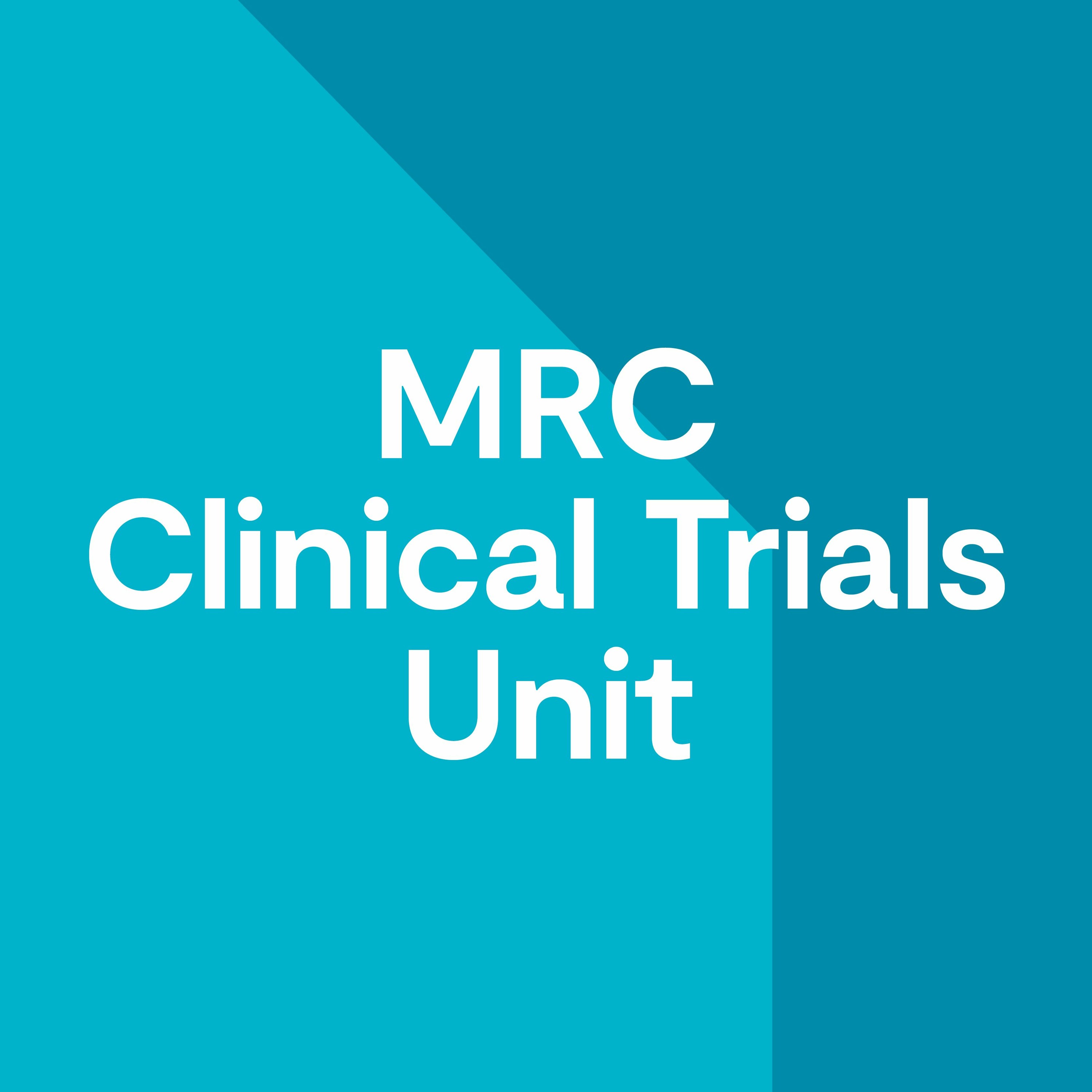
MRC CTU PodcastsAndrew Nunn talks medical statistics, TB, and Algerian nomads (Part 2)Andrew Nunn joined the MRC’s Tuberculosis & Chest Diseases Unit as a statistician in 1966. During the next 20 years he was directly involved in the design, conduct and analysis of the programme of trials conducted under the leadership of Professors Wallace Fox and Denny Mitchison in East Africa, Hong Kong and Singapore which led to the worldwide adoption of short course chemotherapy for tuberculosis.
Following the closure of that unit he joined the MRC’s Uganda AIDS Programme which researched the dynamics of the HIV epidemic in a rural African environment. On his return to the UK he became head of the...
2018-10-2935 min
MRC CTU PodcastsAndrew Nunn talks medical statistics, TB, and Algerian nomads (Part 1)Andrew Nunn joined the MRC’s Tuberculosis & Chest Diseases Unit as a statistician in 1966. During the next 20 years he was directly involved in the design, conduct and analysis of the programme of trials conducted under the leadership of Professors Wallace Fox and Denny Mitchison in East Africa, Hong Kong and Singapore which led to the worldwide adoption of short course chemotherapy for tuberculosis.
Following the closure of that unit he joined the MRC’s Uganda AIDS Programme which researched the dynamics of the HIV epidemic in a rural African environment. On his return to the UK he became head of the...
2018-10-2931 min
Help 4 HD Live!Dr. Ed Wild from HD BuzzEd a consultant neurologist at the National Hospital for Neurology and Neurosurgery and Associate Director of the UCL Huntington’s Disease Centre, where his research team is focused on accelerating drug development through discovering new biomarkers for Huntington’s disease. He leads an MRC-supported longitudinal biomarker study, HD-CSF, and is Global Chief Investigator of the HDClarity study of cerebrospinal fluid in Huntington’s disease. He led the development of the first measurement platform to quantify the mutant huntingtin protein in cerebrospinal fluid and the discovery of neurofilament light protein as the first blood biomarker to predict onset of Huntington’s. He is a...
2018-10-1734 min
StemCells@Lunch DigestedEpisode 51 - Dr Agathe ChaineThis week’s podcast episode, Dr Ines Sequeira interviews Dr Agathe Chaine from the MRC Laboratory for Molecular Cell Biology based at UCL. We hear about her research history, working with “soft cells”, asymmetric division during the development of embryos, and the different types of techniques are being used in her lab…
Dr Chaine was awarded her PhD from the CIRB Collége de France where she stayed on to do a Post Doctoral position researching the biophysical properties of embryonic mitosis.
She is now a Post-Doctoral Fellow at the MRC Laboratory for Molecular and Cell Biology based at UCL, where she...
2018-10-1607 min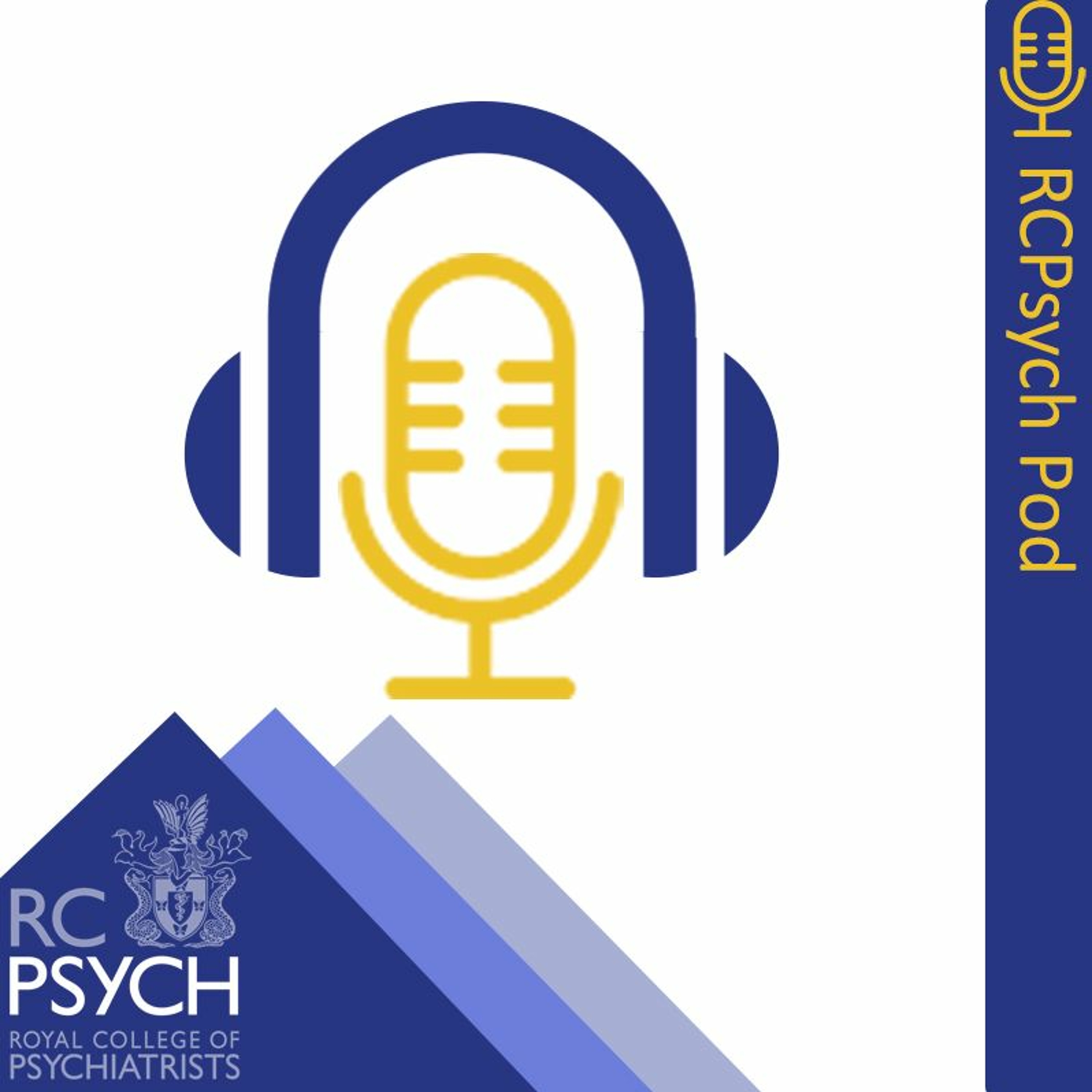
The Royal College of Psychiatrists PodcastChoosing Wisely: What every psychiatrist needs to knowChoosing Wisely: What every psychiatrist needs to know
In this podcast, Dr Howard Ryland, the BJPsych’s Trainee Editor, talks to Dr Daniel Maughan, RCPsych Associate Registrar for Sustainability and Consultant Psychiatrist at Oxford Health and Dr Joe Hayes, MRC Clinical Research Fellow at UCL and RCPsych Choosing Wisely Lead about the Choosing Wisely initiative.
2018-07-2611 min
MRC CTU PodcastsJayne Tierney talks systematic reviews, impact, and fish parasitesJayne Tierney has been a Research Scientist at the Unit since it was formed in 1999, and prior to that, in the Cancer Trials Office in Cambridge. For more than 20 years, she has been responsible for designing and conducting systematic reviews and meta-analyses to rigorously re-evaluate the effectiveness of therapies; projects that have influenced practice guidelines and the treatment of patients worldwide.
Today we discuss Jayne's career in depth, improving systematic reviews, and how to stand out as an individual when the work you do is mostly collaborative.
2018-04-1730 min
StemCells@Lunch DigestedEpisode 30 - Dr Helena KilpinenHelena is interested in the functional effects of genetic variation in human induced pluripotent stem cells (iPSC). Her research combines computational and experimental methods in iPSC-based models to understand the cellular mechanisms that lead to rare human diseases.
Helena is a human geneticist who leads a research group at the UCL Great Ormond Street Institute of Child Health. She is a MRC eMedLab career development fellow (www.emedlab.ac.uk) and holds an appointment also at the Wellcome Trust Sanger Institute. Helena received her PhD from the University of Helsinki, where she studied the genetic mechanisms underlying autism spectrum disorders...
2018-01-2404 min
MRC CTU PodcastsARREST: Rifampicin for Staph. aureus bacteraemia (full length)Staphylococcus aureus (S. aureus) bacteraemia is a common infection worldwide, with mortality rates of around 20%, but little research has been done on how best to treat it. This episode explores the results of the ARREST trial, which looked at adding rifampicin to standard antistaphylococcal antibiotic treatment.
2017-12-1520 minMRC CTU PodcastsARREST: Rifampicin for Staph. aureus bacteraemia (short version)Staphylococcus aureus (S. aureus) bacteraemia is a common infection worldwide, with mortality rates of around 20%, but little research has been done on how best to treat it. This episode explores the results of the ARREST trial, which looked at adding rifampicin to standard antistaphylococcal antibiotic treatment. This is the short version of the recording. A longer version is available on the MRC CTU SoundCloud.
2017-12-1510 min
MRC CTU PodcastsPatrick Royston receives the Stata Journal Editors' Prize 2016Back in January 2017, Professor Patrick Royston was awarded the Stata Journal Editors’ Prize 2016, for his significant contributions to Stata and the Stata community over the last 25 years, and for three papers he published in the Stata Journal during the previous two years. Today, Patrick will officially receive his award at 2017 London Stata Users Group meeting in London.
To commemorate this occasion, we have interviewed Patrick for the first podcast in our new series 'MRCCTU: The Ideas Behind the Trials’. The interview explores Patrick's career in more depth, and provides an insight into his work with Stata, including fractional polynomials, and surv...
2017-09-0531 min
BBC Inside ScienceUK's longest-running cohort study, The Brain prize, Hairy geneticsThis week is birthday time for the 3000-strong group of 70 year olds who might qualify for the title of longest-serving science guinea pigs. Participants in The National Survey for Health and Development cohort study have been closely monitored since their birth in 1946. Joining Adam Rutherford to discuss how this and other similar studies have influenced our lives, and what data we should collect on today's babies, are the Head of the National Survey for Health and Development at MRC's Unit for Lifelong Health and Ageing at University College London, Professor Diana Kuh, and Professor Debbie Lawlor, programme lead at...
2016-03-0328 min
Today's Neuroscience, Tomorrow's History - Professor Terry Jones - Audio1. The MRC Cyclotron Unit and the world’s first hospital-based cyclotronProfessor Terry Jones studied physics and health physics at Birmingham University, graduating with a Masters degree in 1964. In the same year he joined the Medical Research Council (MRC) Cyclotron Unit at Hammersmith Hospital, London, the first hospital-based cyclotron in the world. His career has been in neuro-imaging research, and he produced among the first gamma camera of the brain’s metabolism and blood flow.
In 1972 he visited the US where the first Positron Emission Tomography (PET) scanners were being developed by Michel Ter-Pogossian. Professor Jones developed a technique of breathing oxygen-15 (radioactive oxygen), which emits positrons, to image the brain’s re...
2009-06-2400 min
Today's Neuroscience, Tomorrow's History - Professor Terry Jones - Audio9. First paper on visual (colour) activation, 1989Professor Terry Jones studied physics and health physics at Birmingham University, graduating with a Masters degree in 1964. In the same year he joined the Medical Research Council (MRC) Cyclotron Unit at Hammersmith Hospital, London, the first hospital-based cyclotron in the world. His career has been in neuro-imaging research, and he produced among the first gamma camera of the brain’s metabolism and blood flow.
In 1972 he visited the US where the first Positron Emission Tomography (PET) scanners were being developed by Michel Ter-Pogossian. Professor Jones developed a technique of breathing oxygen-15 (radioactive oxygen), which emits positrons, to image the brain’s re...
2009-02-2400 min
Today's Neuroscience, Tomorrow's History - Professor Terry Jones - Audio8. Building a team – Keith Peters recruits Richard Frackowiack and othersProfessor Terry Jones studied physics and health physics at Birmingham University, graduating with a Masters degree in 1964. In the same year he joined the Medical Research Council (MRC) Cyclotron Unit at Hammersmith Hospital, London, the first hospital-based cyclotron in the world. His career has been in neuro-imaging research, and he produced among the first gamma camera of the brain’s metabolism and blood flow.
In 1972 he visited the US where the first Positron Emission Tomography (PET) scanners were being developed by Michel Ter-Pogossian. Professor Jones developed a technique of breathing oxygen-15 (radioactive oxygen), which emits positrons, to image the brain’s re...
2009-02-2400 min
Today's Neuroscience, Tomorrow's History - Professor Terry Jones - Audio7. Hammersmith forges ahead in functional imaging studiesProfessor Terry Jones studied physics and health physics at Birmingham University, graduating with a Masters degree in 1964. In the same year he joined the Medical Research Council (MRC) Cyclotron Unit at Hammersmith Hospital, London, the first hospital-based cyclotron in the world. His career has been in neuro-imaging research, and he produced among the first gamma camera of the brain’s metabolism and blood flow.
In 1972 he visited the US where the first Positron Emission Tomography (PET) scanners were being developed by Michel Ter-Pogossian. Professor Jones developed a technique of breathing oxygen-15 (radioactive oxygen), which emits positrons, to image the brain’s re...
2009-02-2400 min
Today's Neuroscience, Tomorrow's History - Professor Terry Jones - Audio4. Positron Emission Tomography (PET), 1972 - measuring brain metabolismProfessor Terry Jones studied physics and health physics at Birmingham University, graduating with a Masters degree in 1964. In the same year he joined the Medical Research Council (MRC) Cyclotron Unit at Hammersmith Hospital, London, the first hospital-based cyclotron in the world. His career has been in neuro-imaging research, and he produced among the first gamma camera of the brain’s metabolism and blood flow.
In 1972 he visited the US where the first Positron Emission Tomography (PET) scanners were being developed by Michel Ter-Pogossian. Professor Jones developed a technique of breathing oxygen-15 (radioactive oxygen), which emits positrons, to image the brain’s re...
2009-02-2400 min
Today's Neuroscience, Tomorrow's History - Professor Terry Jones - Audio22. Things Remembered – inspiring the clinical communityProfessor Terry Jones studied physics and health physics at Birmingham University, graduating with a Masters degree in 1964. In the same year he joined the Medical Research Council (MRC) Cyclotron Unit at Hammersmith Hospital, London, the first hospital-based cyclotron in the world. His career has been in neuro-imaging research, and he produced among the first gamma camera of the brain’s metabolism and blood flow.
In 1972 he visited the US where the first Positron Emission Tomography (PET) scanners were being developed by Michel Ter-Pogossian. Professor Jones developed a technique of breathing oxygen-15 (radioactive oxygen), which emits positrons, to image the brain’s re...
2009-02-2400 min
Today's Neuroscience, Tomorrow's History - Professor Terry Jones - Audio10. Statistical Parametric Mapping (SPM) – Karl Friston’s ‘great leap forward’Professor Terry Jones studied physics and health physics at Birmingham University, graduating with a Masters degree in 1964. In the same year he joined the Medical Research Council (MRC) Cyclotron Unit at Hammersmith Hospital, London, the first hospital-based cyclotron in the world. His career has been in neuro-imaging research, and he produced among the first gamma camera of the brain’s metabolism and blood flow.
In 1972 he visited the US where the first Positron Emission Tomography (PET) scanners were being developed by Michel Ter-Pogossian. Professor Jones developed a technique of breathing oxygen-15 (radioactive oxygen), which emits positrons, to image the brain’s re...
2009-02-2400 min
Today's Neuroscience, Tomorrow's History - Professor Terry Jones - Audio21. Things Remembered – creating the teamsProfessor Terry Jones studied physics and health physics at Birmingham University, graduating with a Masters degree in 1964. In the same year he joined the Medical Research Council (MRC) Cyclotron Unit at Hammersmith Hospital, London, the first hospital-based cyclotron in the world. His career has been in neuro-imaging research, and he produced among the first gamma camera of the brain’s metabolism and blood flow.
In 1972 he visited the US where the first Positron Emission Tomography (PET) scanners were being developed by Michel Ter-Pogossian. Professor Jones developed a technique of breathing oxygen-15 (radioactive oxygen), which emits positrons, to image the brain’s re...
2009-02-2300 min
Today's Neuroscience, Tomorrow's History - Professor Terry Jones - Audio20. Last Days at the Hammersmith – the MRC proposes to split the unitProfessor Terry Jones studied physics and health physics at Birmingham University, graduating with a Masters degree in 1964. In the same year he joined the Medical Research Council (MRC) Cyclotron Unit at Hammersmith Hospital, London, the first hospital-based cyclotron in the world. His career has been in neuro-imaging research, and he produced among the first gamma camera of the brain’s metabolism and blood flow.
In 1972 he visited the US where the first Positron Emission Tomography (PET) scanners were being developed by Michel Ter-Pogossian. Professor Jones developed a technique of breathing oxygen-15 (radioactive oxygen), which emits positrons, to image the brain’s re...
2009-02-2300 min
Today's Neuroscience, Tomorrow's History - Professor Terry Jones - Audio19. PET – biologicals and the Northwick Park accidentProfessor Terry Jones studied physics and health physics at Birmingham University, graduating with a Masters degree in 1964. In the same year he joined the Medical Research Council (MRC) Cyclotron Unit at Hammersmith Hospital, London, the first hospital-based cyclotron in the world. His career has been in neuro-imaging research, and he produced among the first gamma camera of the brain’s metabolism and blood flow.
In 1972 he visited the US where the first Positron Emission Tomography (PET) scanners were being developed by Michel Ter-Pogossian. Professor Jones developed a technique of breathing oxygen-15 (radioactive oxygen), which emits positrons, to image the brain’s re...
2009-02-2300 min
Today's Neuroscience, Tomorrow's History - Professor Terry Jones - Audio18. PET – the burden of psychiatric disordersProfessor Terry Jones studied physics and health physics at Birmingham University, graduating with a Masters degree in 1964. In the same year he joined the Medical Research Council (MRC) Cyclotron Unit at Hammersmith Hospital, London, the first hospital-based cyclotron in the world. His career has been in neuro-imaging research, and he produced among the first gamma camera of the brain’s metabolism and blood flow.
In 1972 he visited the US where the first Positron Emission Tomography (PET) scanners were being developed by Michel Ter-Pogossian. Professor Jones developed a technique of breathing oxygen-15 (radioactive oxygen), which emits positrons, to image the brain’s re...
2009-02-2300 min
Today's Neuroscience, Tomorrow's History - Professor Terry Jones - Audio17. PET – serotonin researchProfessor Terry Jones studied physics and health physics at Birmingham University, graduating with a Masters degree in 1964. In the same year he joined the Medical Research Council (MRC) Cyclotron Unit at Hammersmith Hospital, London, the first hospital-based cyclotron in the world. His career has been in neuro-imaging research, and he produced among the first gamma camera of the brain’s metabolism and blood flow.
In 1972 he visited the US where the first Positron Emission Tomography (PET) scanners were being developed by Michel Ter-Pogossian. Professor Jones developed a technique of breathing oxygen-15 (radioactive oxygen), which emits positrons, to image the brain’s re...
2009-02-2300 min
Today's Neuroscience, Tomorrow's History - Professor Terry Jones - Audio16. PET – microglia activation in stroke, Alzheimer’s and MSProfessor Terry Jones studied physics and health physics at Birmingham University, graduating with a Masters degree in 1964. In the same year he joined the Medical Research Council (MRC) Cyclotron Unit at Hammersmith Hospital, London, the first hospital-based cyclotron in the world. His career has been in neuro-imaging research, and he produced among the first gamma camera of the brain’s metabolism and blood flow.
In 1972 he visited the US where the first Positron Emission Tomography (PET) scanners were being developed by Michel Ter-Pogossian. Professor Jones developed a technique of breathing oxygen-15 (radioactive oxygen), which emits positrons, to image the brain’s re...
2009-02-2300 min
Today's Neuroscience, Tomorrow's History - Professor Terry Jones - Audio15. PET – developing drugs for brain tumoursProfessor Terry Jones studied physics and health physics at Birmingham University, graduating with a Masters degree in 1964. In the same year he joined the Medical Research Council (MRC) Cyclotron Unit at Hammersmith Hospital, London, the first hospital-based cyclotron in the world. His career has been in neuro-imaging research, and he produced among the first gamma camera of the brain’s metabolism and blood flow.
In 1972 he visited the US where the first Positron Emission Tomography (PET) scanners were being developed by Michel Ter-Pogossian. Professor Jones developed a technique of breathing oxygen-15 (radioactive oxygen), which emits positrons, to image the brain’s re...
2009-02-2300 min
Today's Neuroscience, Tomorrow's History - Professor Terry Jones - Audio14. PET – the dopamine reward systemProfessor Terry Jones studied physics and health physics at Birmingham University, graduating with a Masters degree in 1964. In the same year he joined the Medical Research Council (MRC) Cyclotron Unit at Hammersmith Hospital, London, the first hospital-based cyclotron in the world. His career has been in neuro-imaging research, and he produced among the first gamma camera of the brain’s metabolism and blood flow.
In 1972 he visited the US where the first Positron Emission Tomography (PET) scanners were being developed by Michel Ter-Pogossian. Professor Jones developed a technique of breathing oxygen-15 (radioactive oxygen), which emits positrons, to image the brain’s re...
2009-02-2300 min
Today's Neuroscience, Tomorrow's History - Professor Terry Jones - Audio13. PET – pain mechanisms and research into opiatesProfessor Terry Jones studied physics and health physics at Birmingham University, graduating with a Masters degree in 1964. In the same year he joined the Medical Research Council (MRC) Cyclotron Unit at Hammersmith Hospital, London, the first hospital-based cyclotron in the world. His career has been in neuro-imaging research, and he produced among the first gamma camera of the brain’s metabolism and blood flow.
In 1972 he visited the US where the first Positron Emission Tomography (PET) scanners were being developed by Michel Ter-Pogossian. Professor Jones developed a technique of breathing oxygen-15 (radioactive oxygen), which emits positrons, to image the brain’s re...
2009-02-2300 min
Today's Neuroscience, Tomorrow's History - Professor Terry Jones - Audio12. PET – the detection of brain chemical activityProfessor Terry Jones studied physics and health physics at Birmingham University, graduating with a Masters degree in 1964. In the same year he joined the Medical Research Council (MRC) Cyclotron Unit at Hammersmith Hospital, London, the first hospital-based cyclotron in the world. His career has been in neuro-imaging research, and he produced among the first gamma camera of the brain’s metabolism and blood flow.
In 1972 he visited the US where the first Positron Emission Tomography (PET) scanners were being developed by Michel Ter-Pogossian. Professor Jones developed a technique of breathing oxygen-15 (radioactive oxygen), which emits positrons, to image the brain’s re...
2009-02-2300 min
Today's Neuroscience, Tomorrow's History - Professor Terry Jones - Audio5. Positron Emission Tomography (PET) – how it works and the first image of regionalProfessor Terry Jones studied physics and health physics at Birmingham University, graduating with a Masters degree in 1964. In the same year he joined the Medical Research Council (MRC) Cyclotron Unit at Hammersmith Hospital, London, the first hospital-based cyclotron in the world. His career has been in neuro-imaging research, and he produced among the first gamma camera of the brain’s metabolism and blood flow.
In 1972 he visited the US where the first Positron Emission Tomography (PET) scanners were being developed by Michel Ter-Pogossian. Professor Jones developed a technique of breathing oxygen-15 (radioactive oxygen), which emits positrons, to image the brain’s re...
2009-02-2300 min
Today's Neuroscience, Tomorrow's History - Professor Terry Jones - Audio11. Development of functional Magnetic Resonance Imaging (fMRI)Professor Terry Jones studied physics and health physics at Birmingham University, graduating with a Masters degree in 1964. In the same year he joined the Medical Research Council (MRC) Cyclotron Unit at Hammersmith Hospital, London, the first hospital-based cyclotron in the world. His career has been in neuro-imaging research, and he produced among the first gamma camera of the brain’s metabolism and blood flow.
In 1972 he visited the US where the first Positron Emission Tomography (PET) scanners were being developed by Michel Ter-Pogossian. Professor Jones developed a technique of breathing oxygen-15 (radioactive oxygen), which emits positrons, to image the brain’s re...
2009-02-2300 min
Today's Neuroscience, Tomorrow's History - Professor Terry Jones - Audio6. A PET camera for the Hammersmith HospitalProfessor Terry Jones studied physics and health physics at Birmingham University, graduating with a Masters degree in 1964. In the same year he joined the Medical Research Council (MRC) Cyclotron Unit at Hammersmith Hospital, London, the first hospital-based cyclotron in the world. His career has been in neuro-imaging research, and he produced among the first gamma camera of the brain’s metabolism and blood flow.
In 1972 he visited the US where the first Positron Emission Tomography (PET) scanners were being developed by Michel Ter-Pogossian. Professor Jones developed a technique of breathing oxygen-15 (radioactive oxygen), which emits positrons, to image the brain’s re...
2009-02-2000 min
Today's Neuroscience, Tomorrow's History - Professor Terry Jones - Audio3. Michel Ter-Pogossian and the positron cameraProfessor Terry Jones studied physics and health physics at Birmingham University, graduating with a Masters degree in 1964. In the same year he joined the Medical Research Council (MRC) Cyclotron Unit at Hammersmith Hospital, London, the first hospital-based cyclotron in the world. His career has been in neuro-imaging research, and he produced among the first gamma camera of the brain’s metabolism and blood flow.
In 1972 he visited the US where the first Positron Emission Tomography (PET) scanners were being developed by Michel Ter-Pogossian. Professor Jones developed a technique of breathing oxygen-15 (radioactive oxygen), which emits positrons, to image the brain’s re...
2009-02-2000 min
Today's Neuroscience, Tomorrow's History - Professor Terry Jones - Audio2. First gamma camera images of the brain’s metabolism and blood flowProfessor Terry Jones studied physics and health physics at Birmingham University, graduating with a Masters degree in 1964. In the same year he joined the Medical Research Council (MRC) Cyclotron Unit at Hammersmith Hospital, London, the first hospital-based cyclotron in the world. His career has been in neuro-imaging research, and he produced among the first gamma camera of the brain’s metabolism and blood flow.
In 1972 he visited the US where the first Positron Emission Tomography (PET) scanners were being developed by Michel Ter-Pogossian. Professor Jones developed a technique of breathing oxygen-15 (radioactive oxygen), which emits positrons, to image the brain’s re...
2009-02-2000 min
Today's Neuroscience, Tomorrow's History - Professor Richard Frackowiak - Audio06. Recruiting a team at the MRC Cyclotron UnitProfessor Richard Frackowiak was born in London and studied medicine at the University of Cambridge where he first became interested in the neurosciences. He joined the Medical Research Council’s Cyclotron Unit at Hammersmith Hospital, London, in 1979, under Professor Terry Jones, who had just installed one of Britain’s first Positron Emission Tomography (PET) scanners.
Professor Frackowiak has always worked in brain imaging and his particular focus has been on determing how the normal brain functions, and how individuals’ activities and environments collaborate to shape their brains. In 1995, as Professor of Cognitive Neurology at UCL’s Institute of Neurology, he establis...
2009-02-1900 min